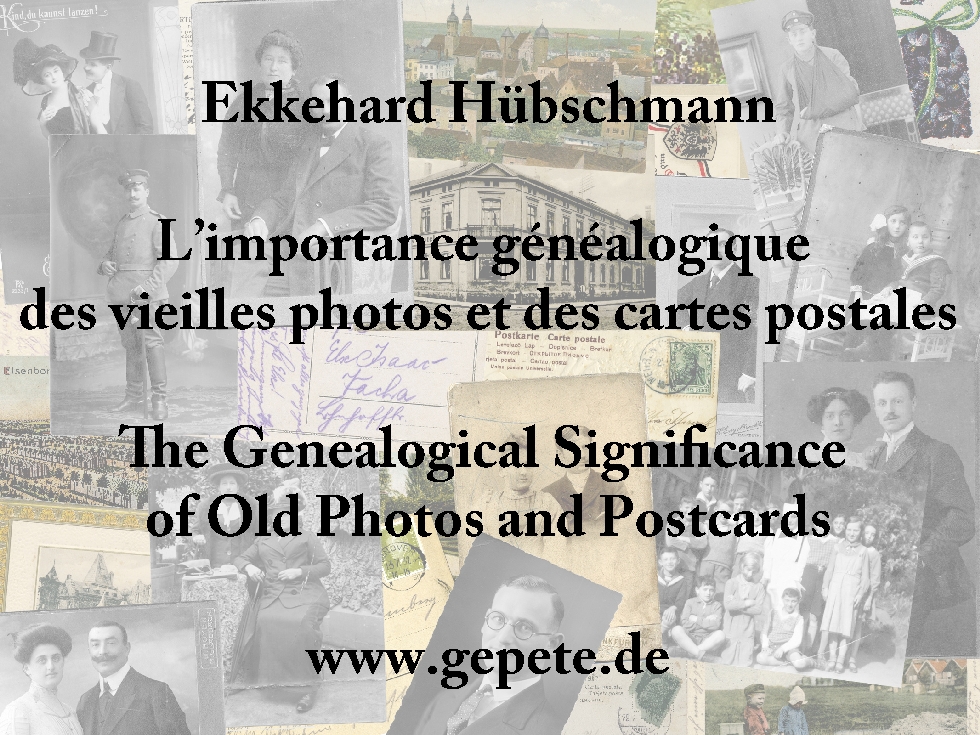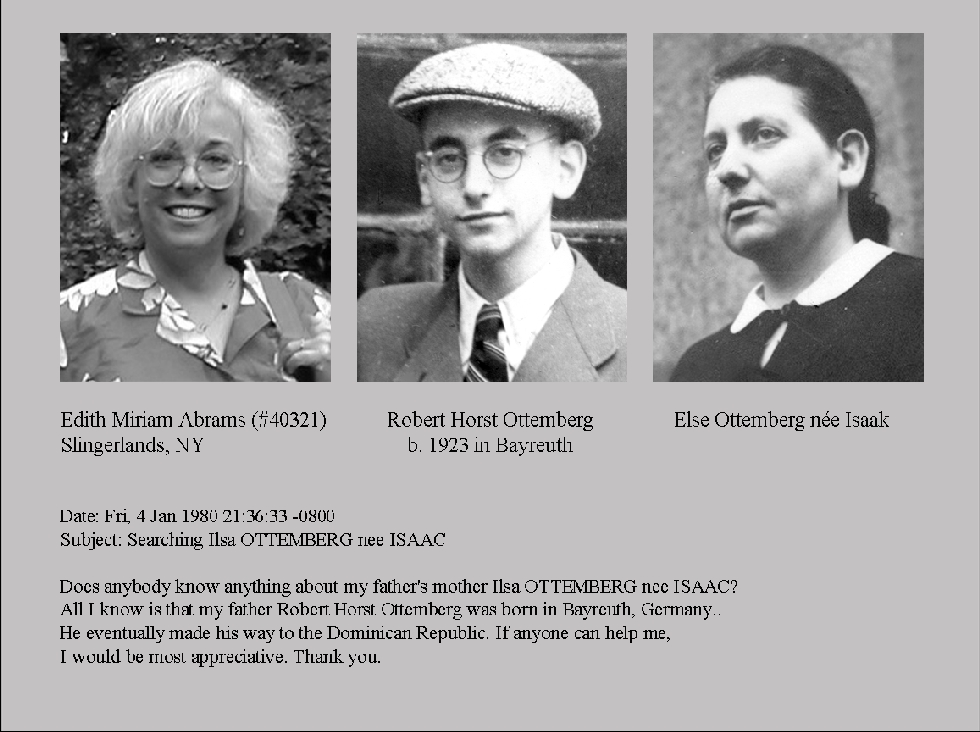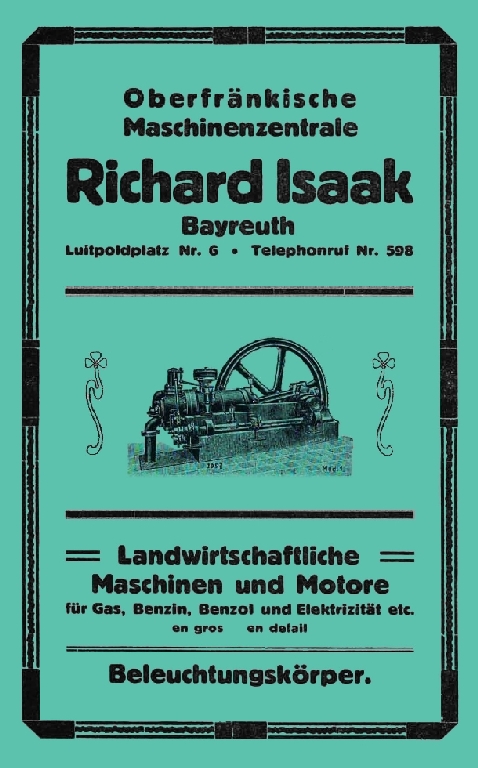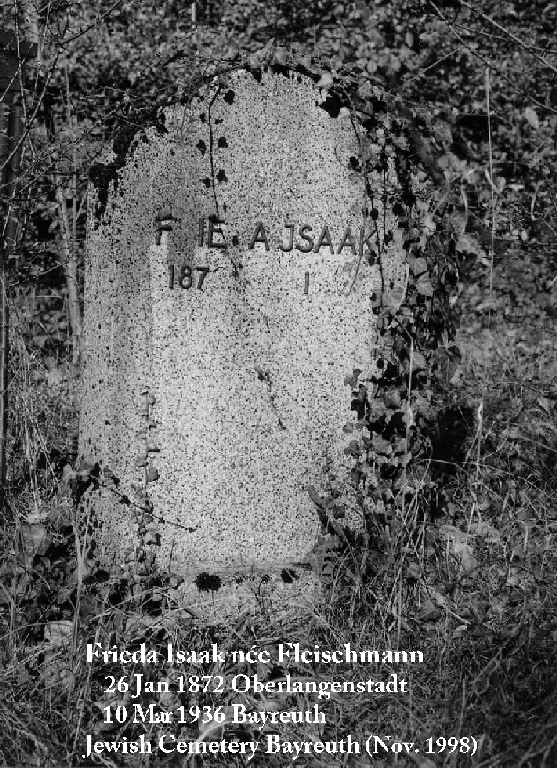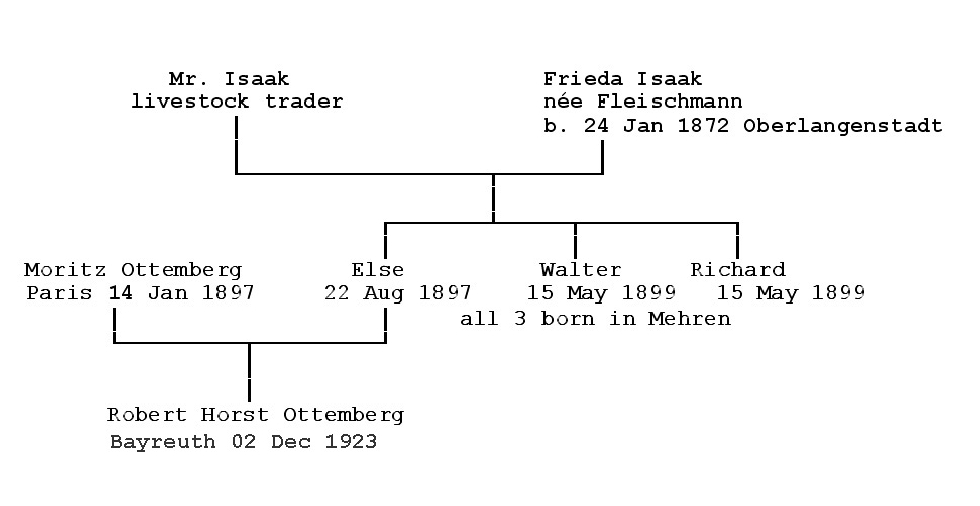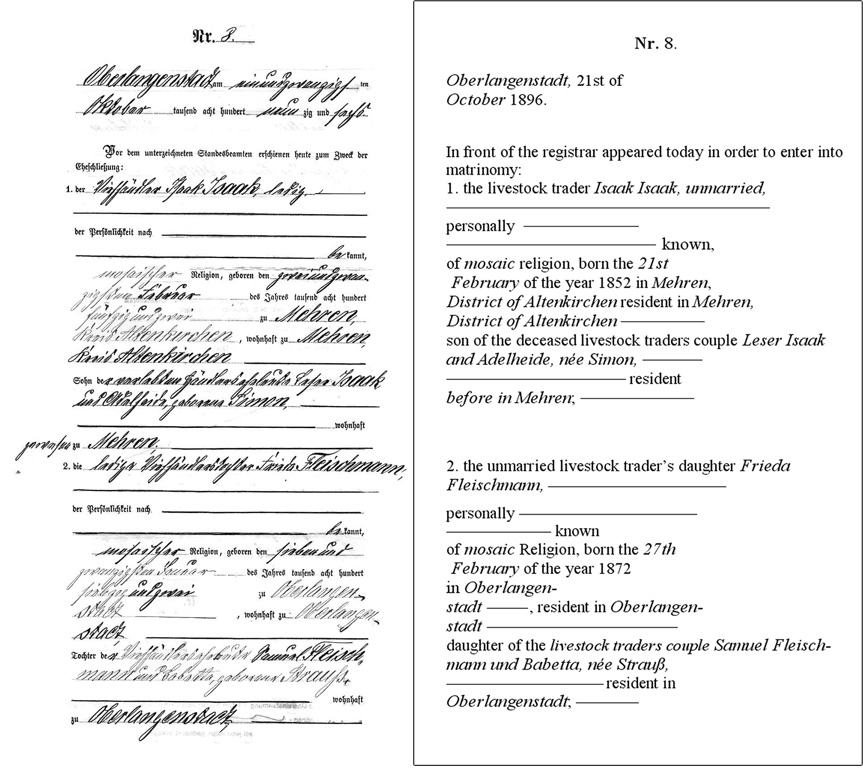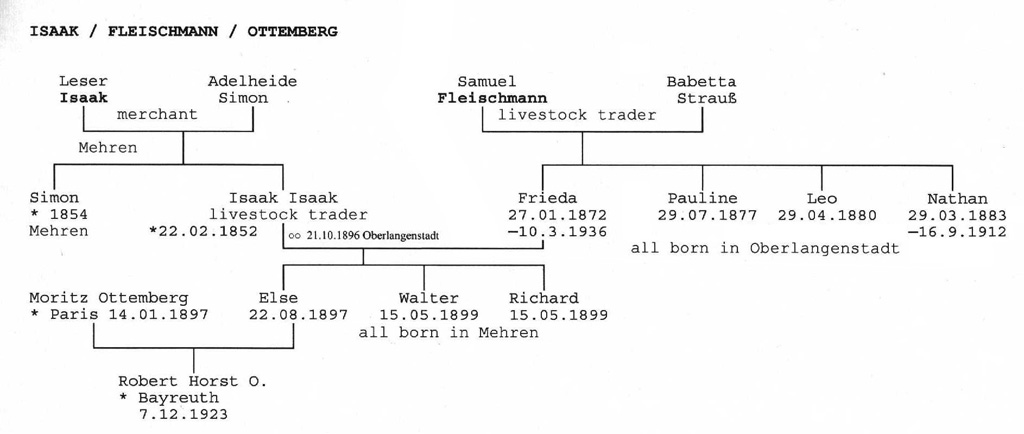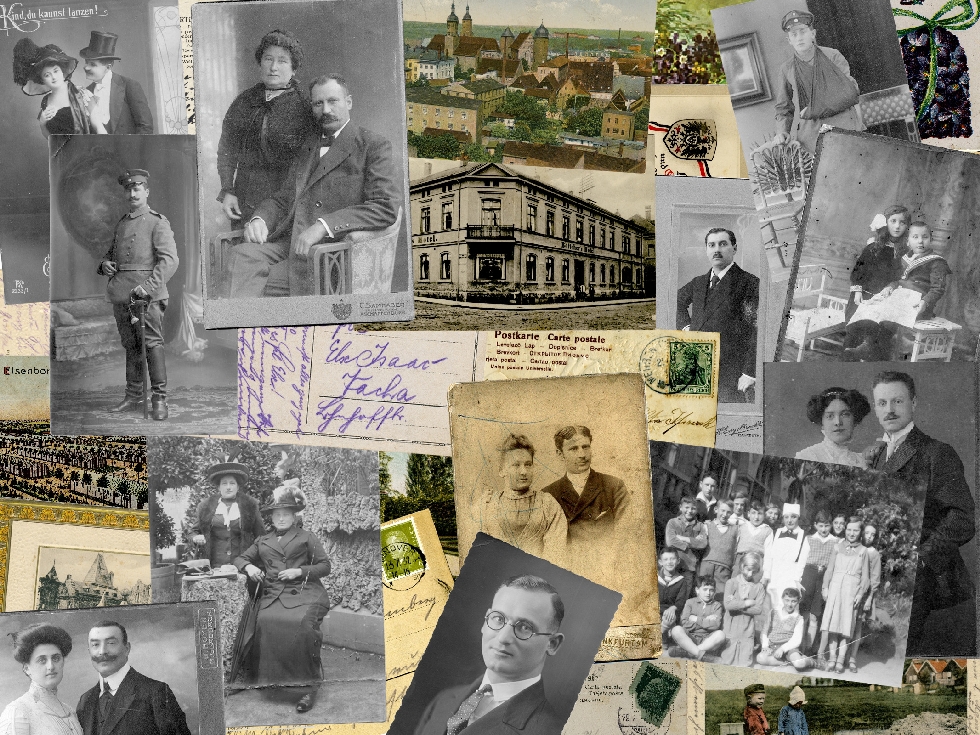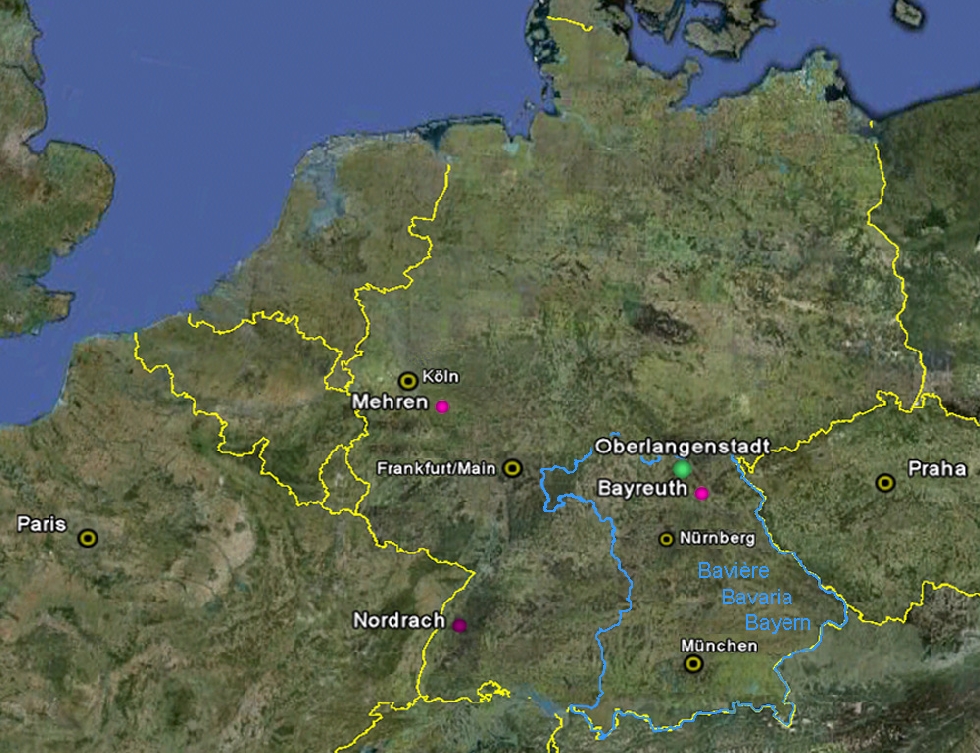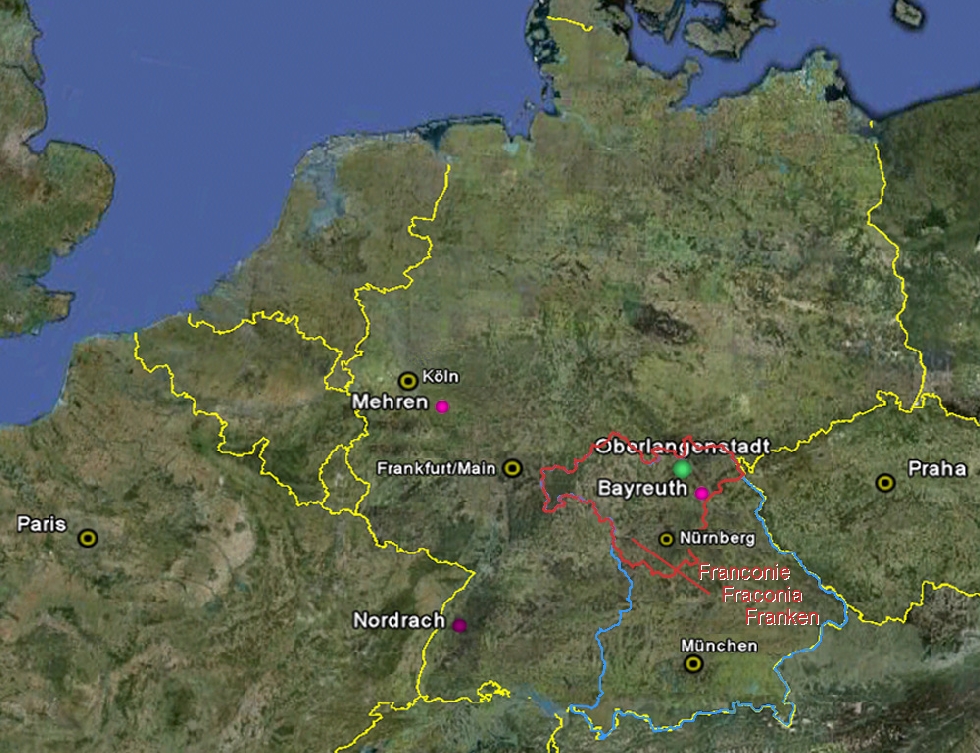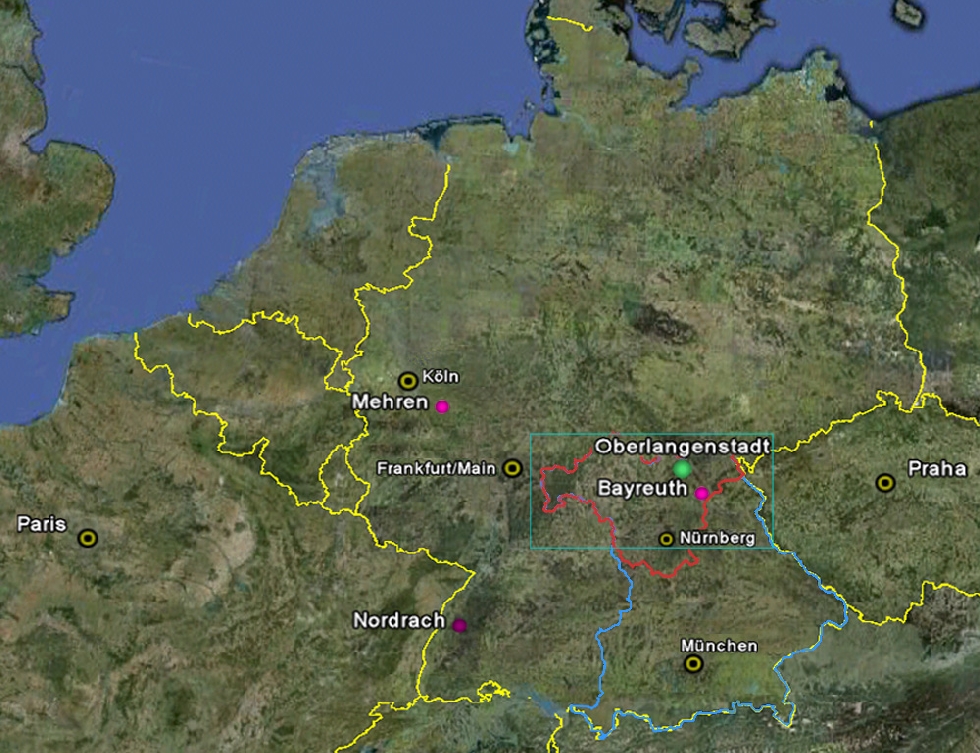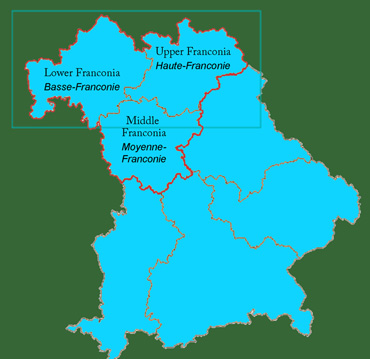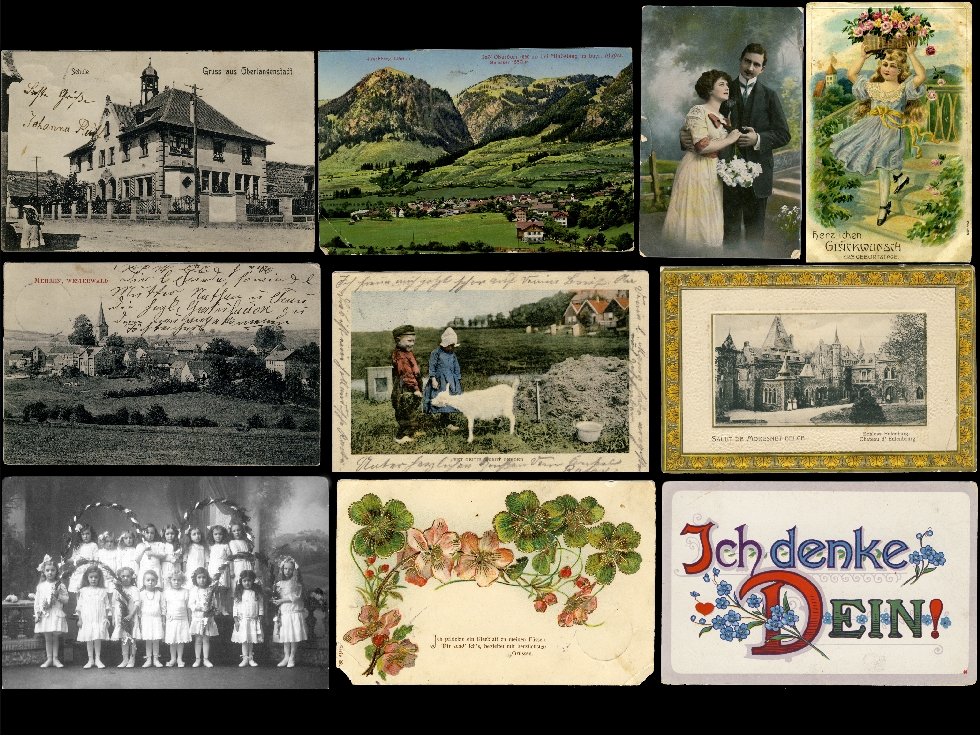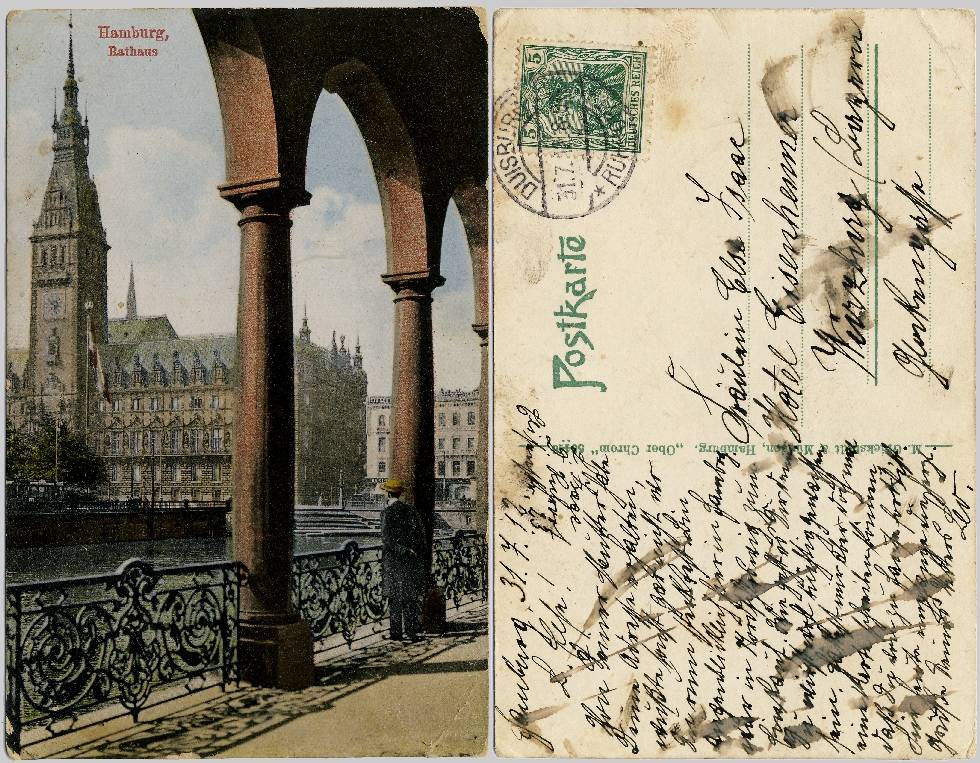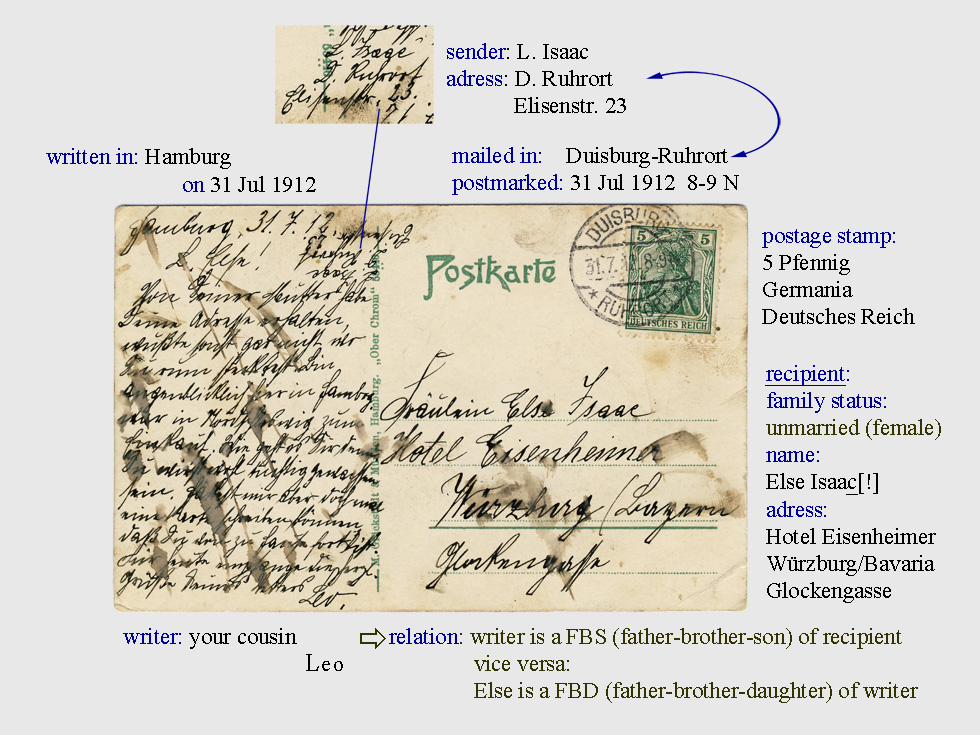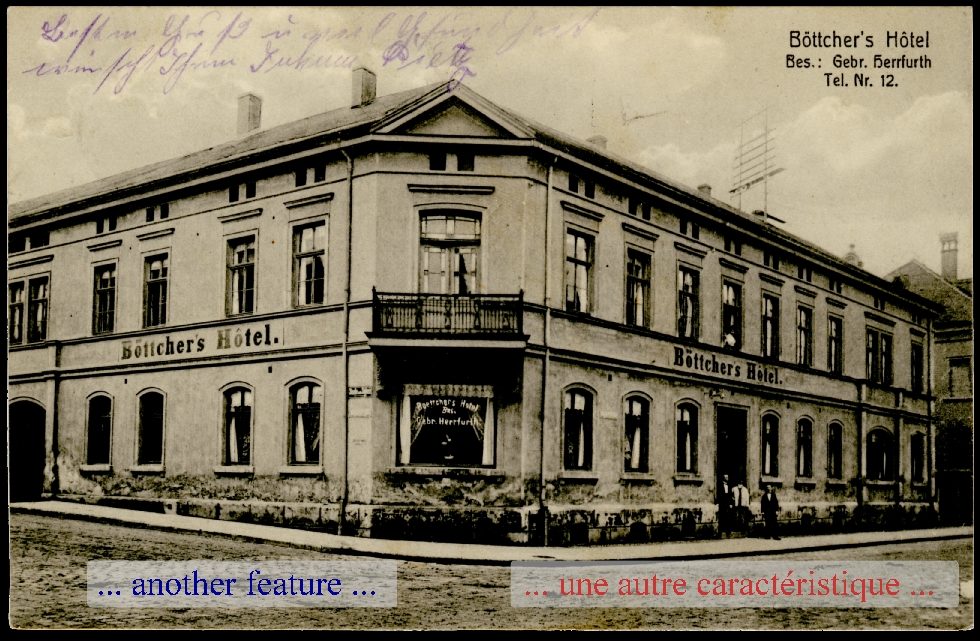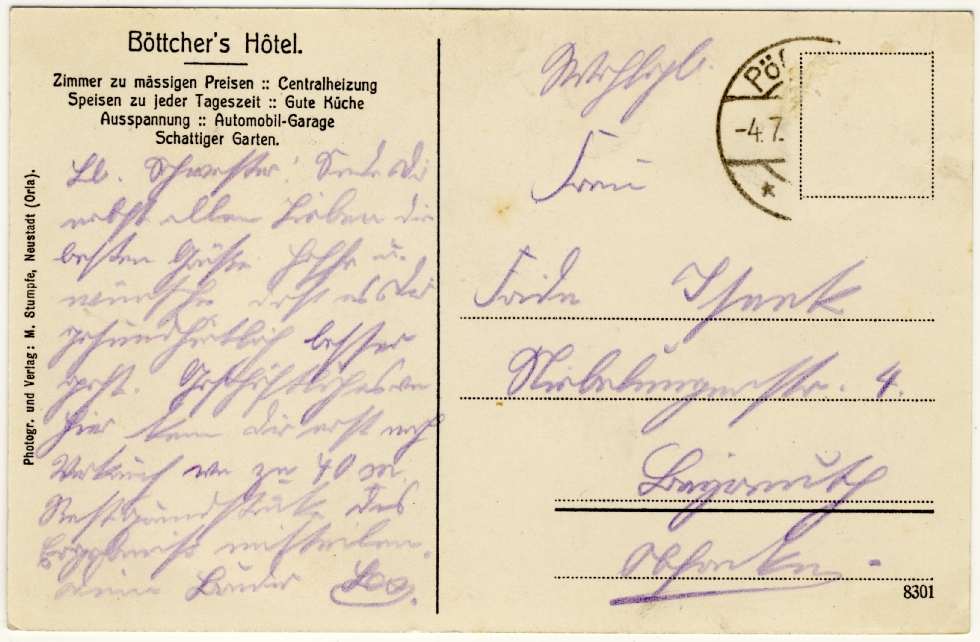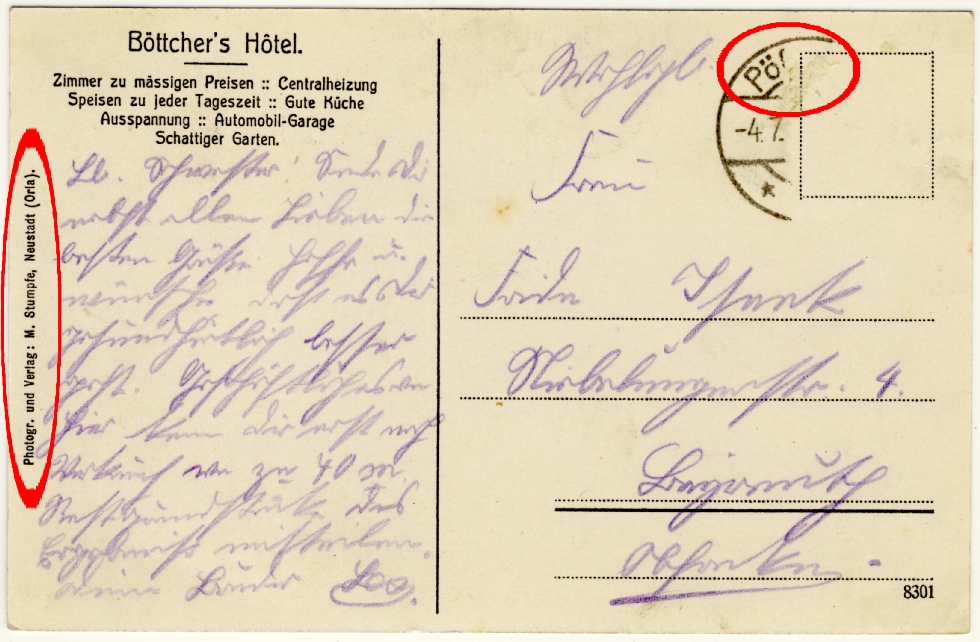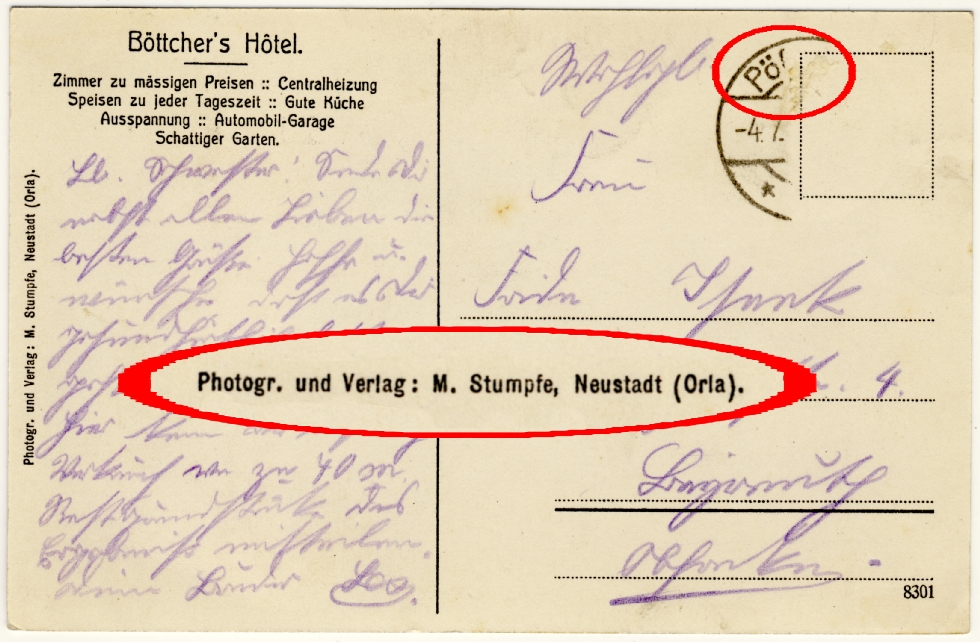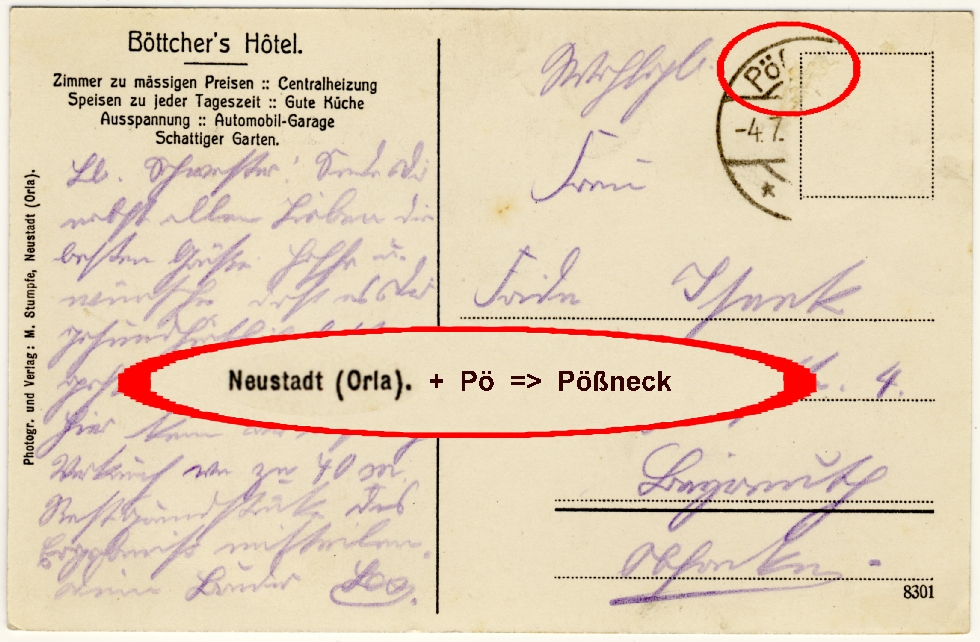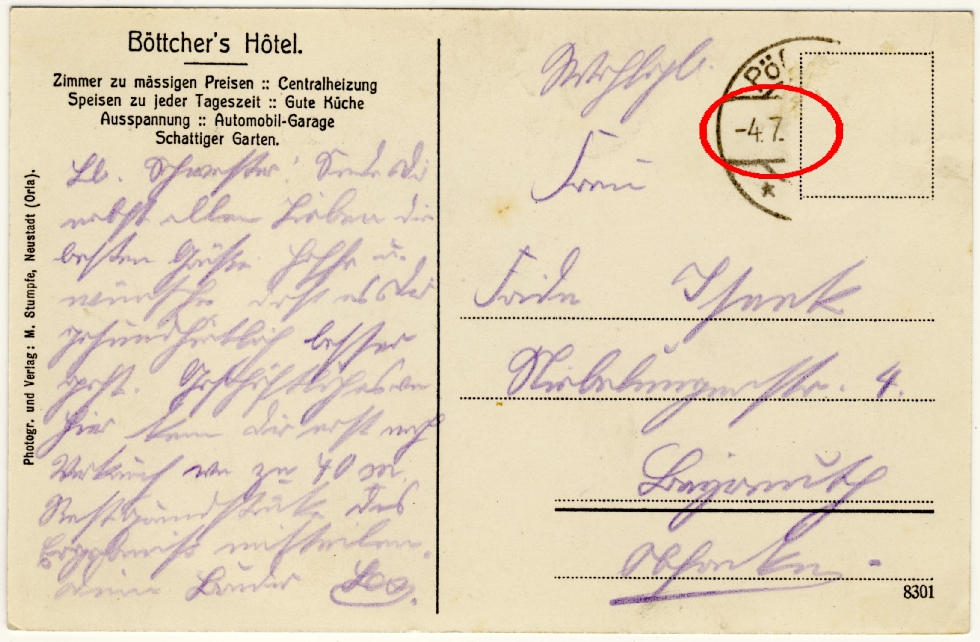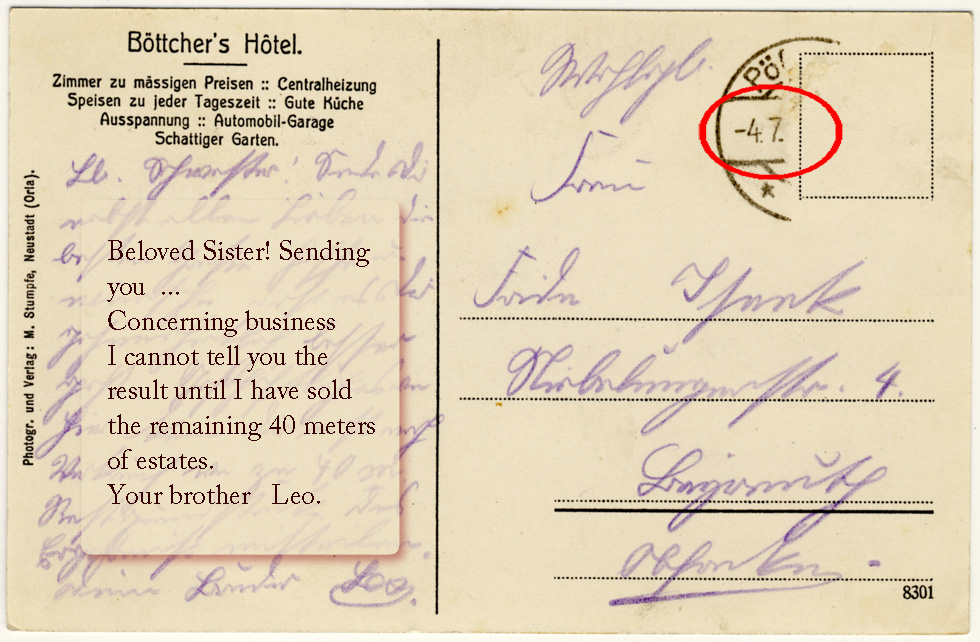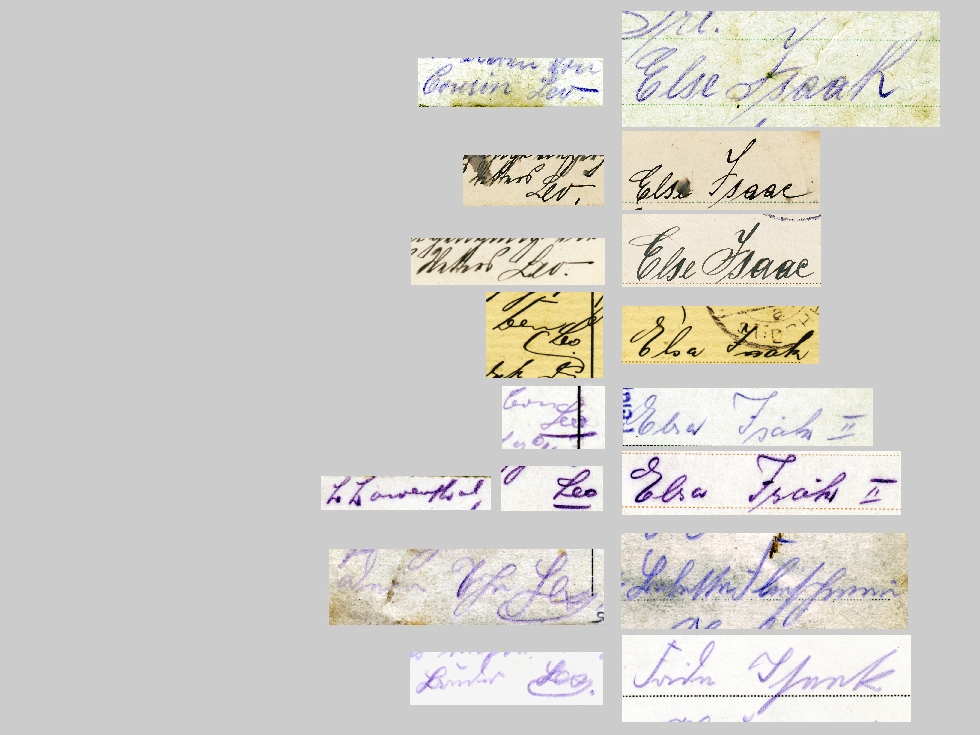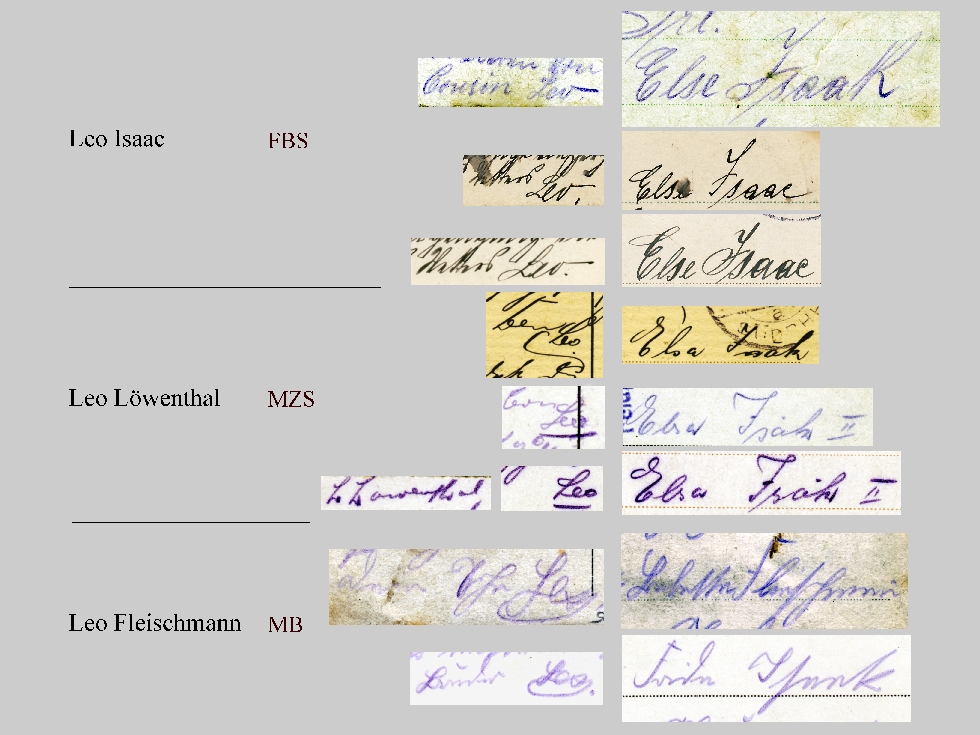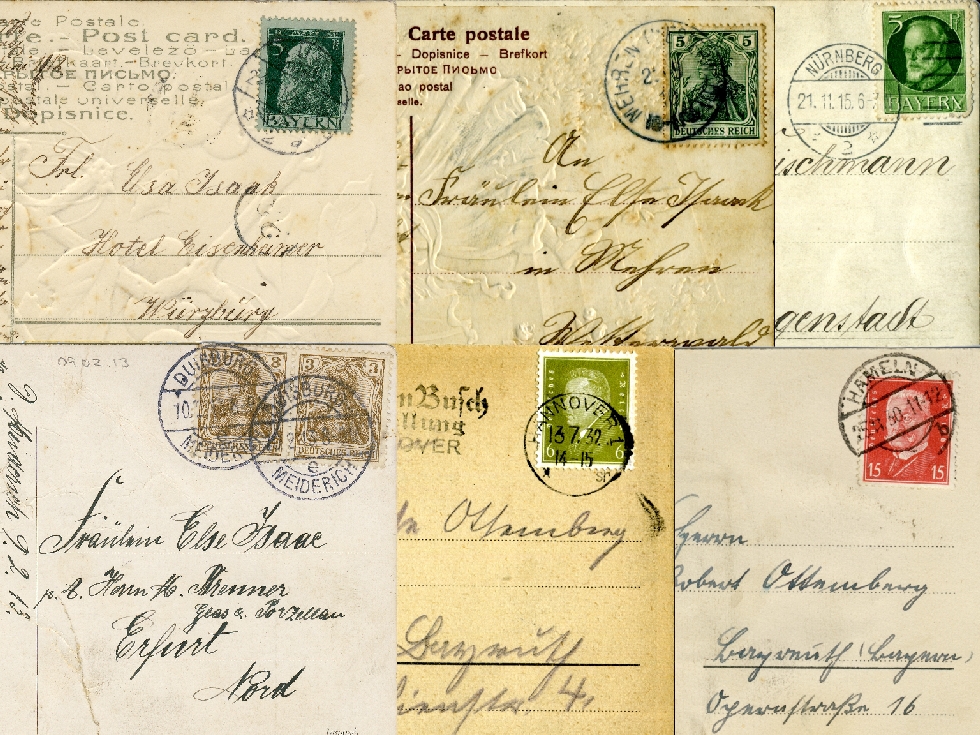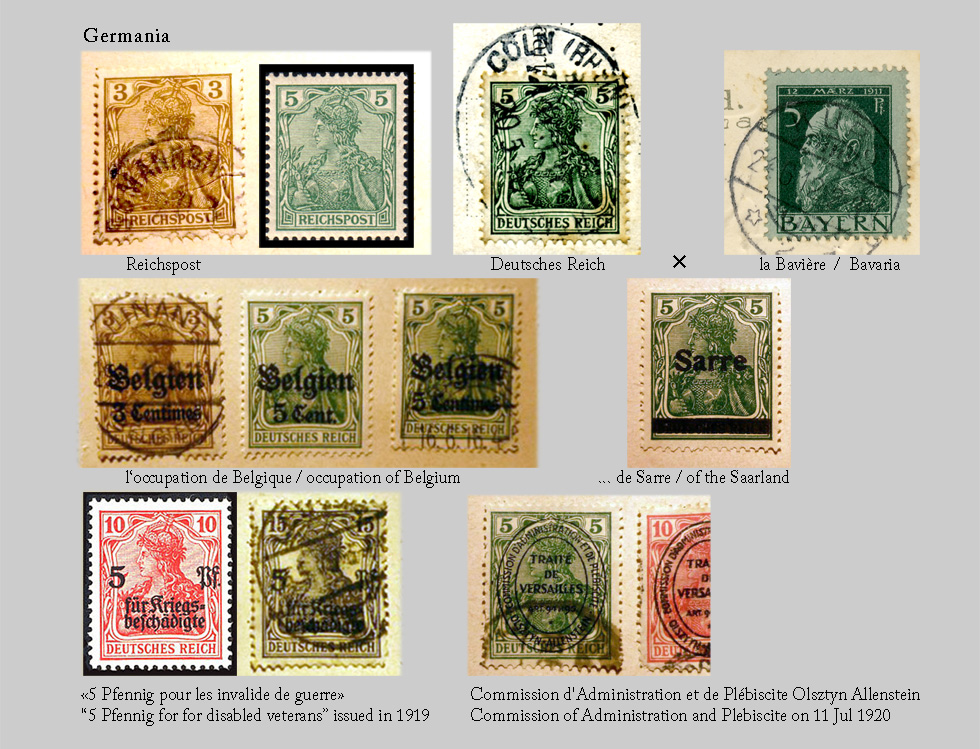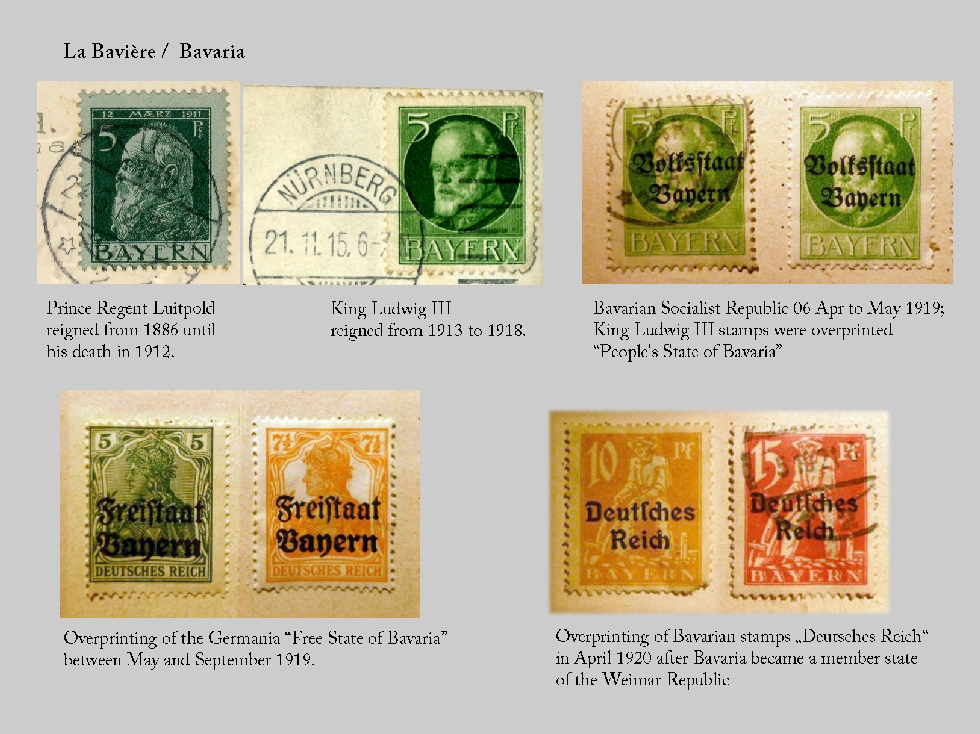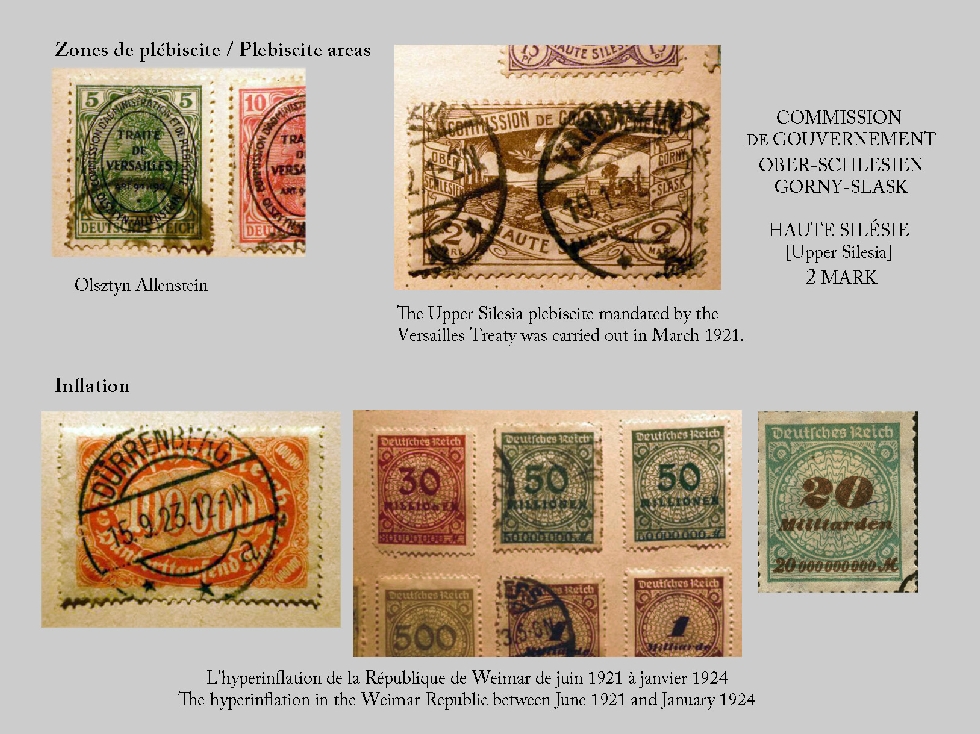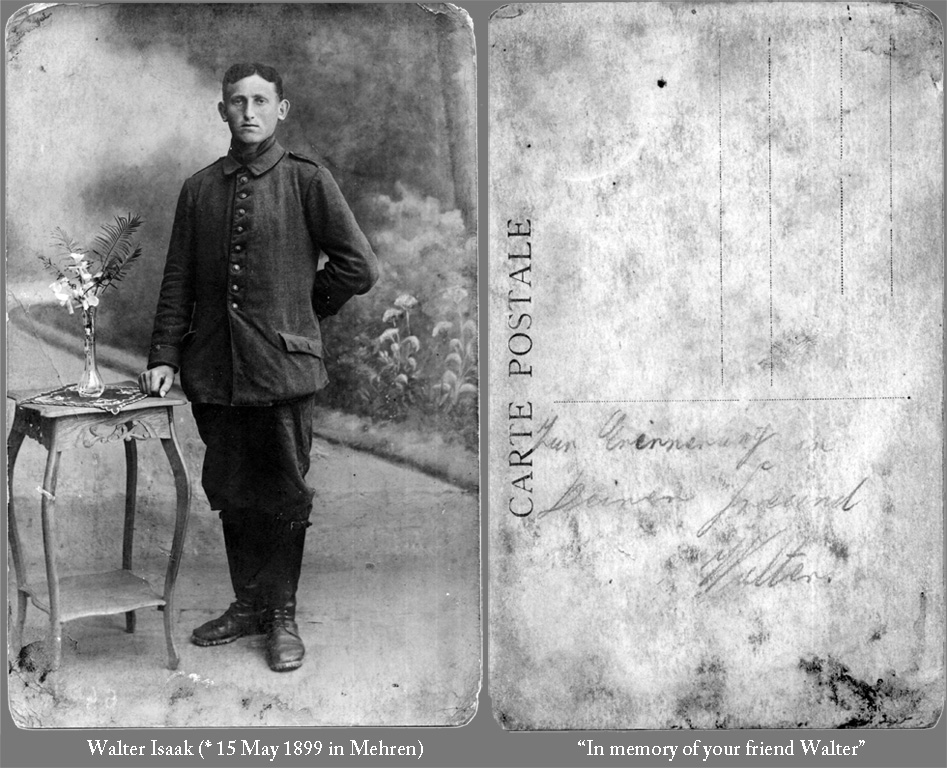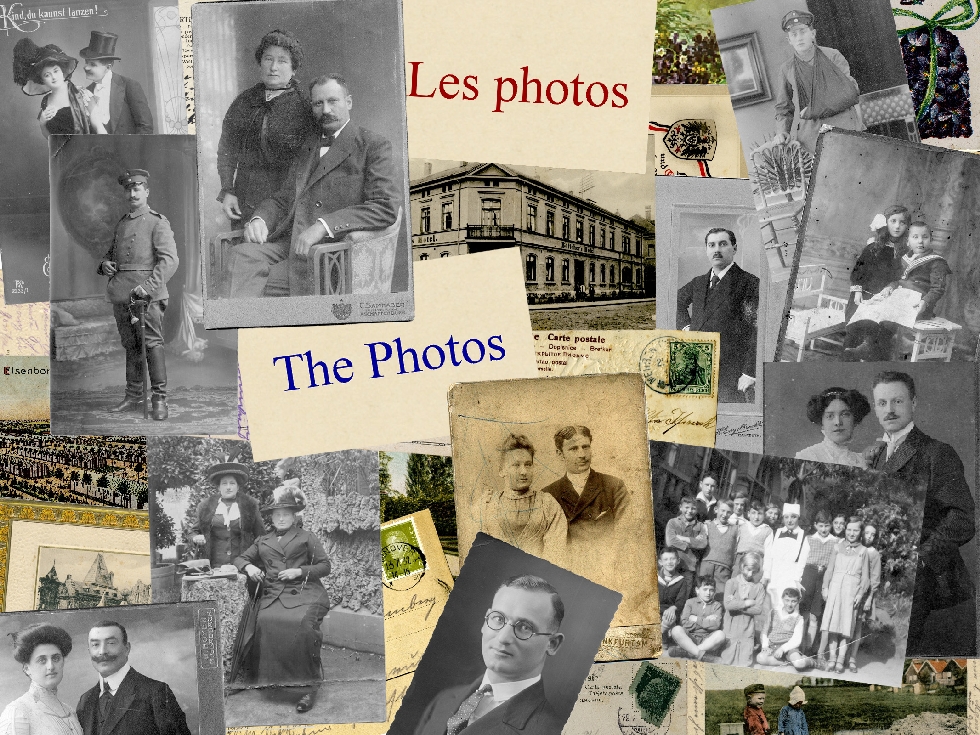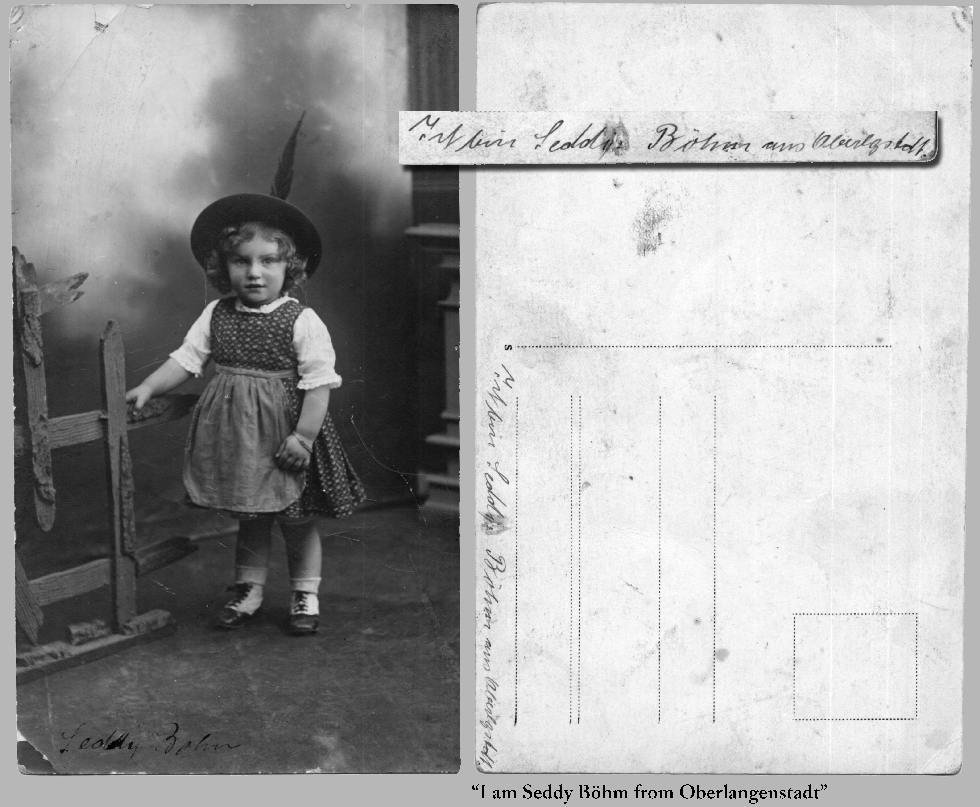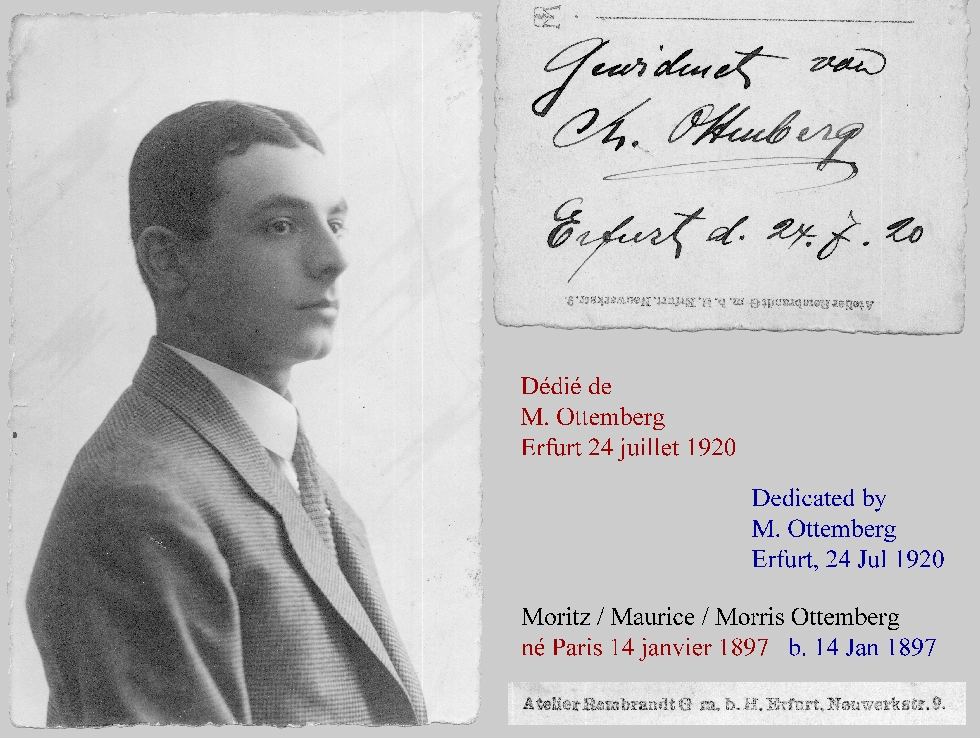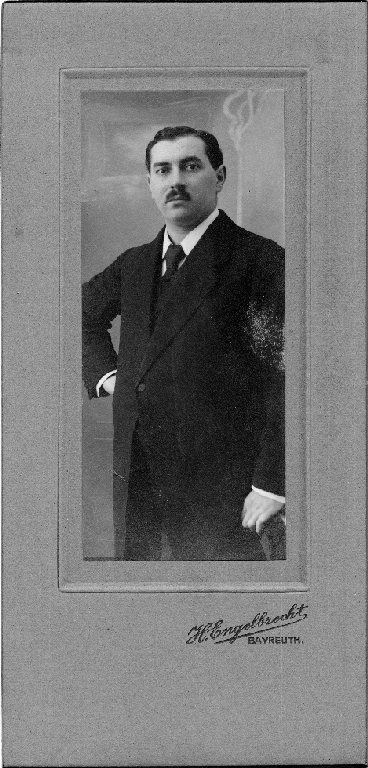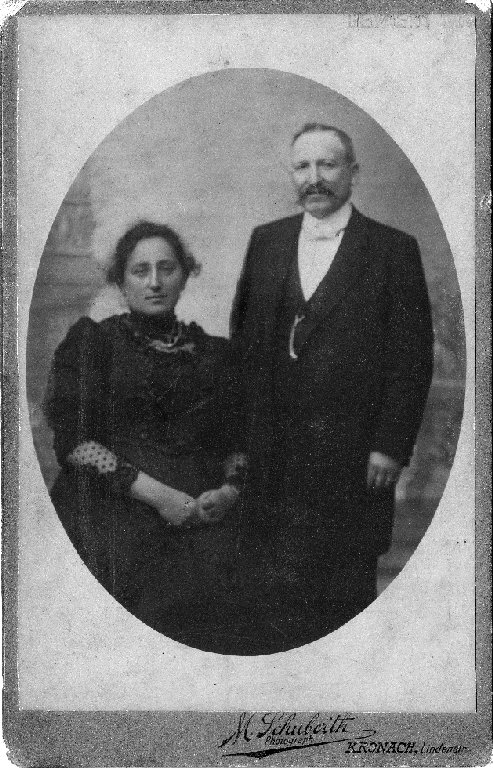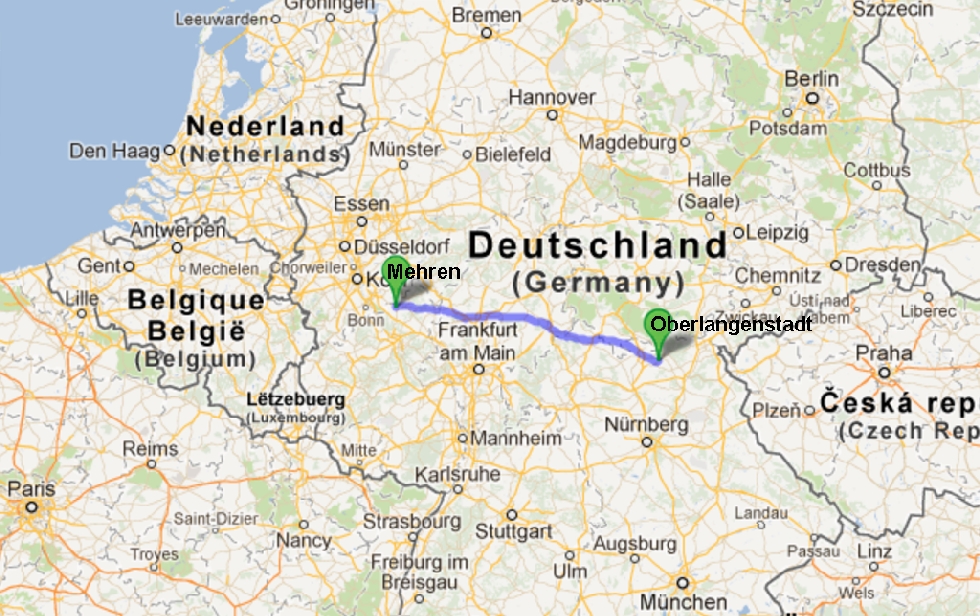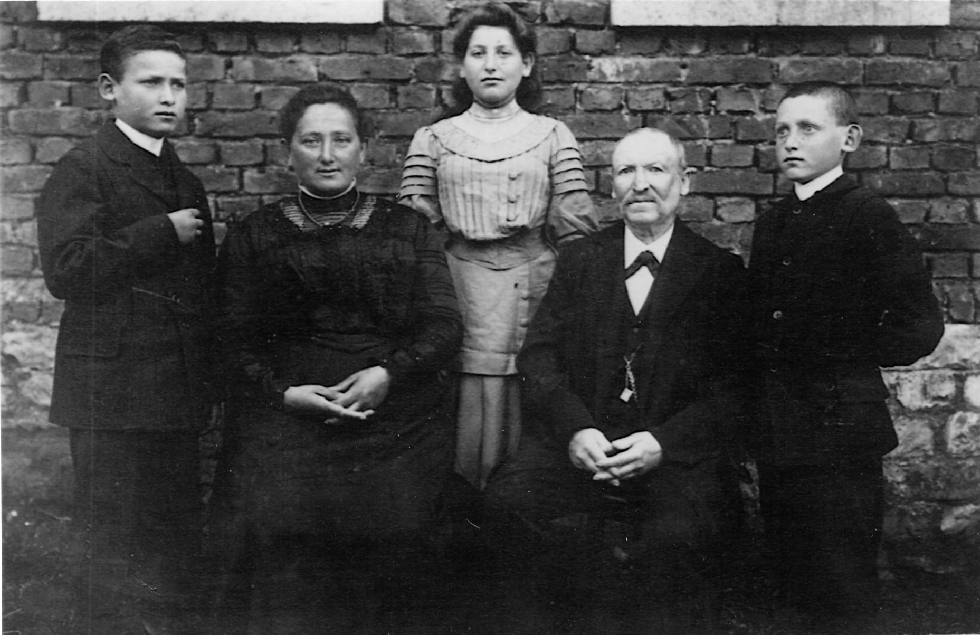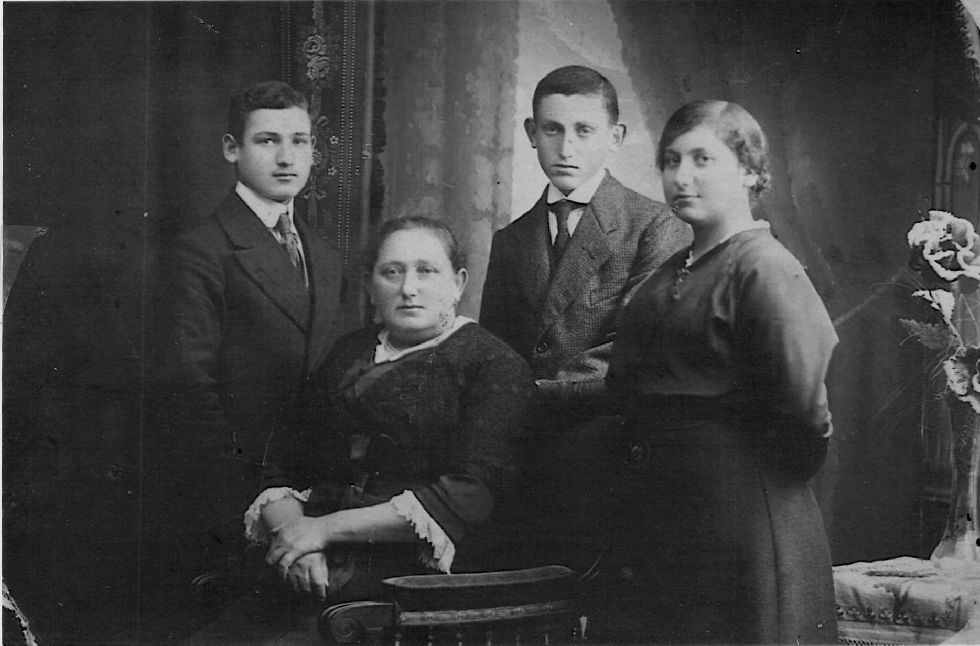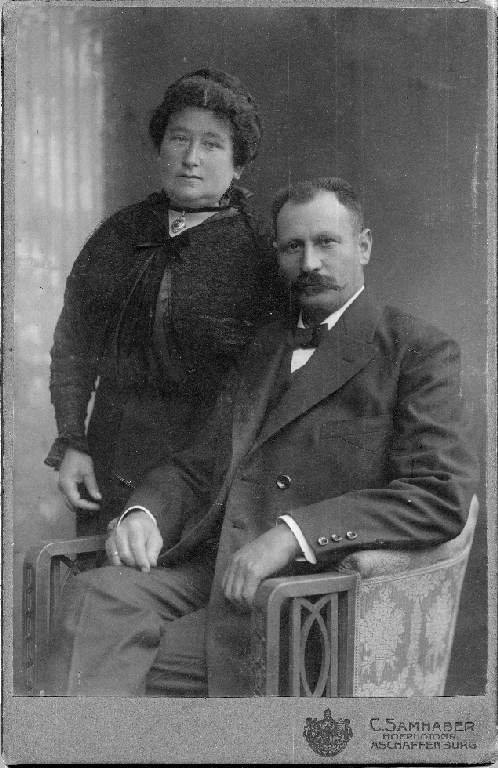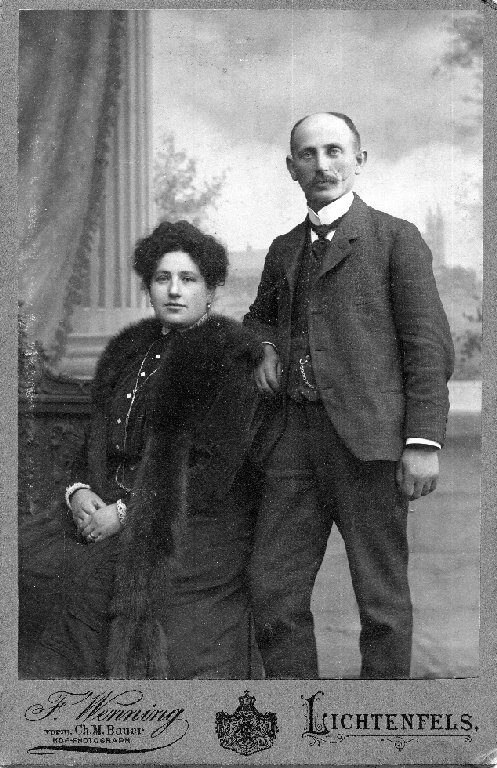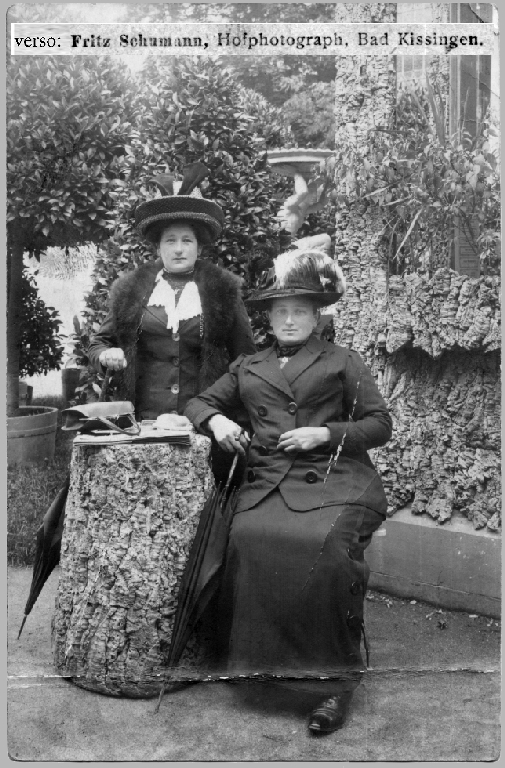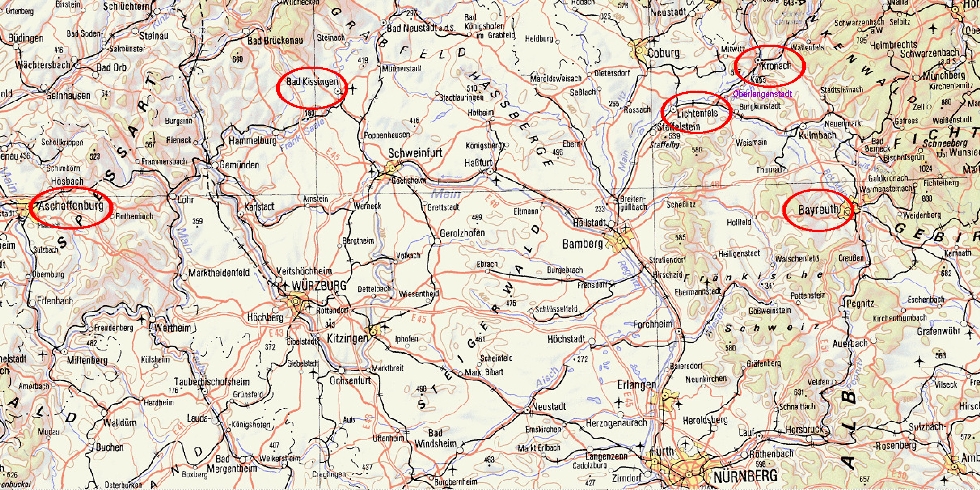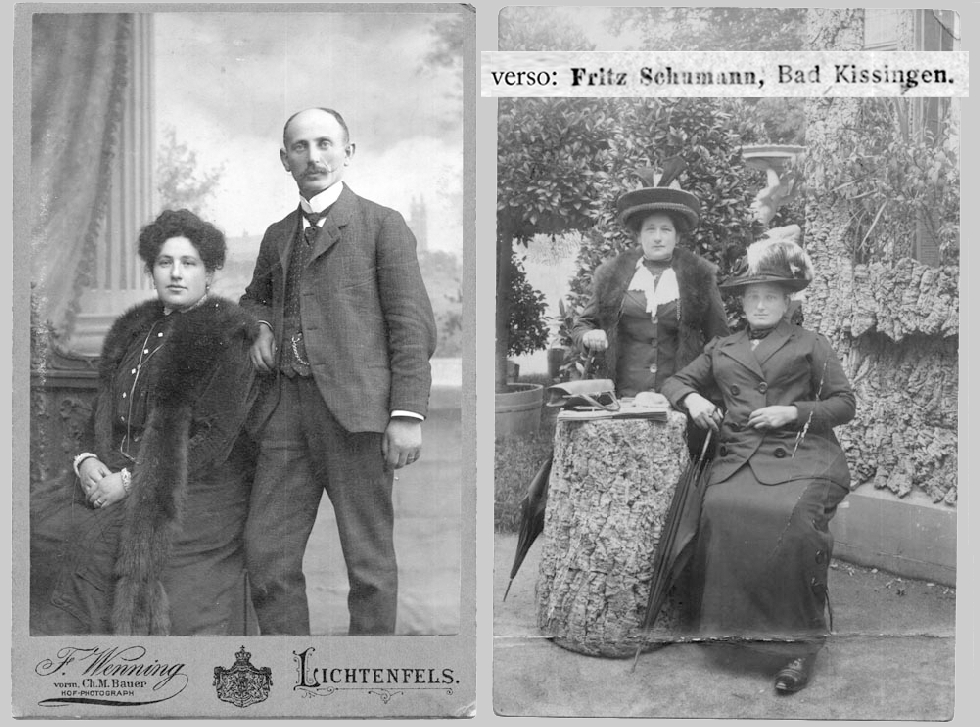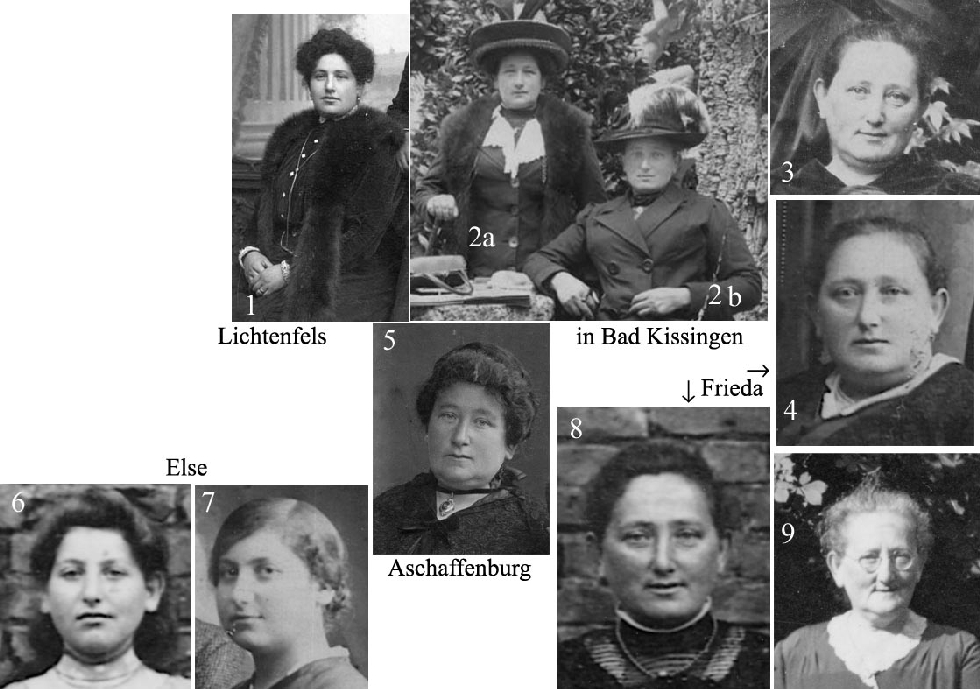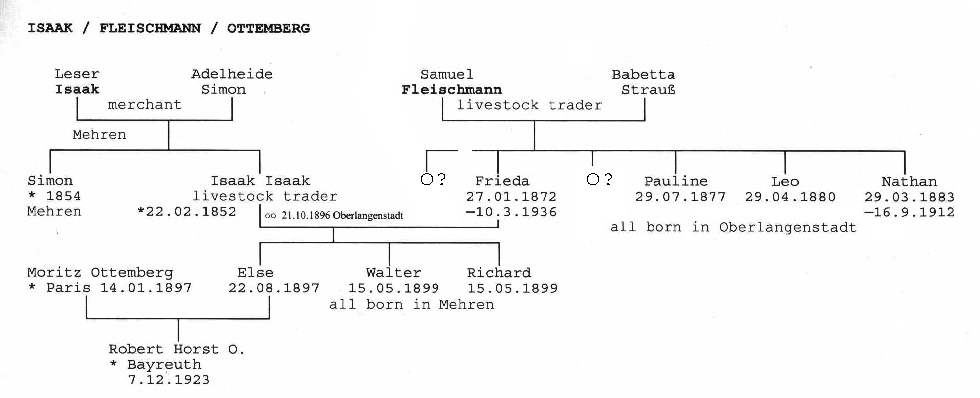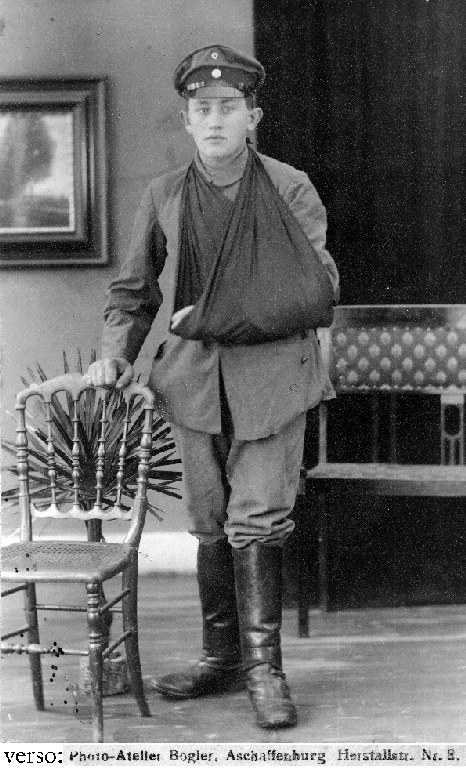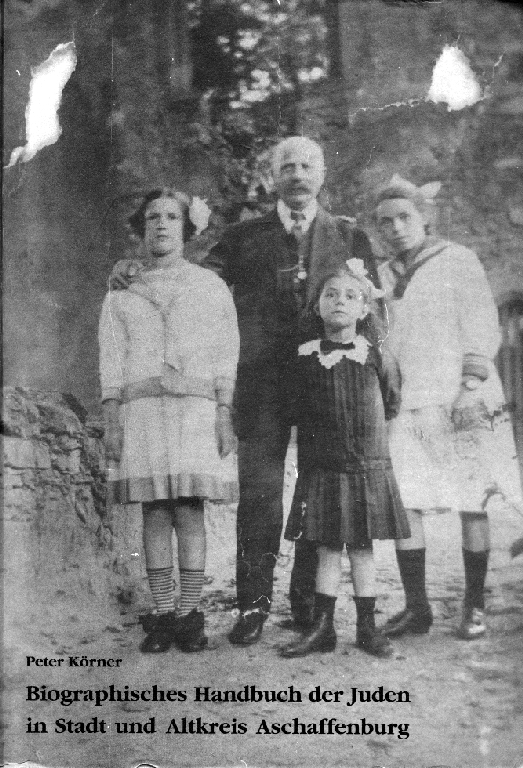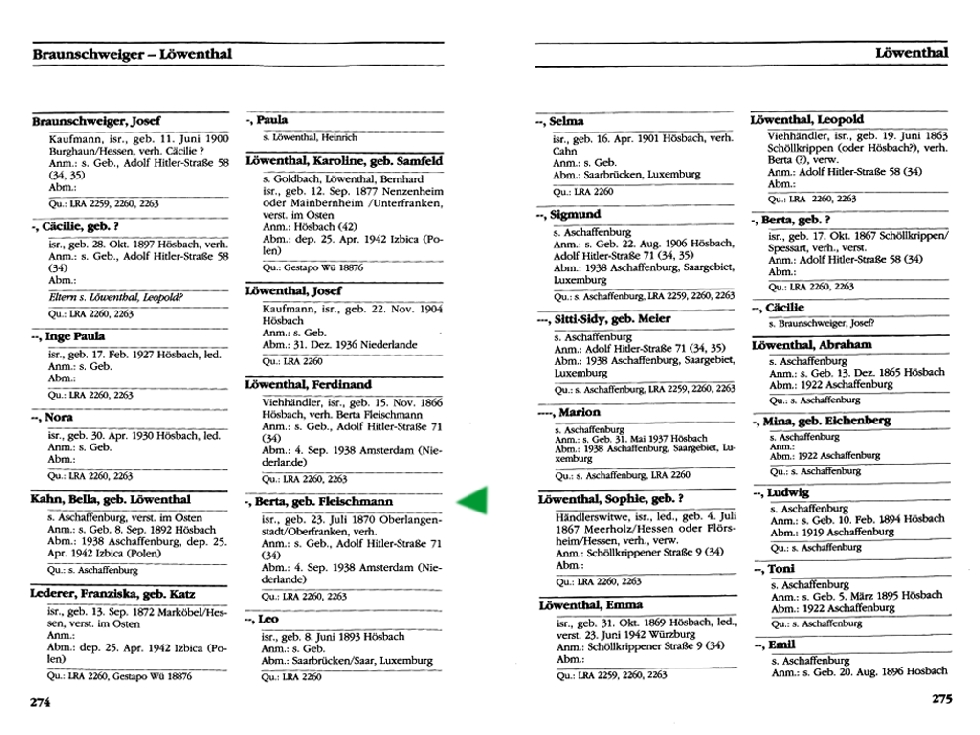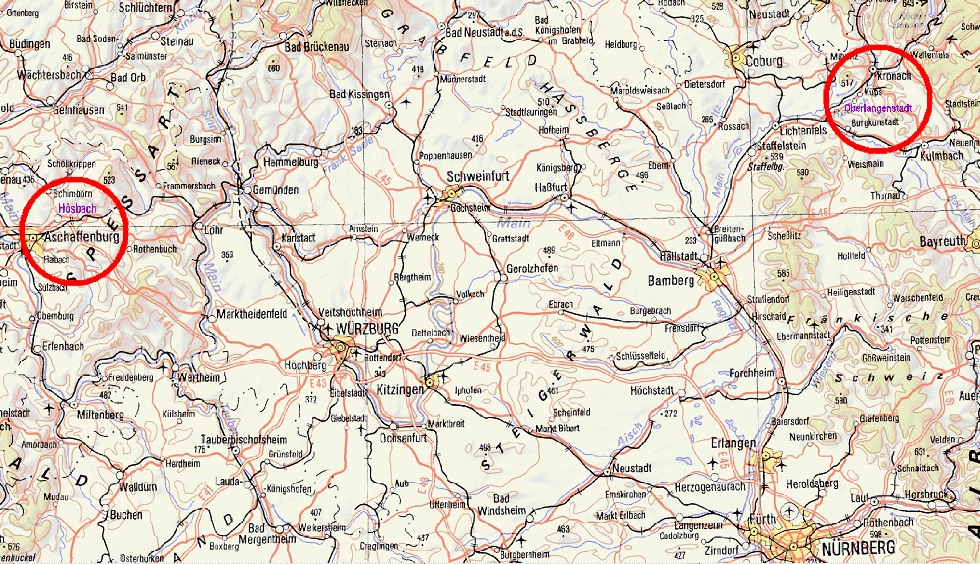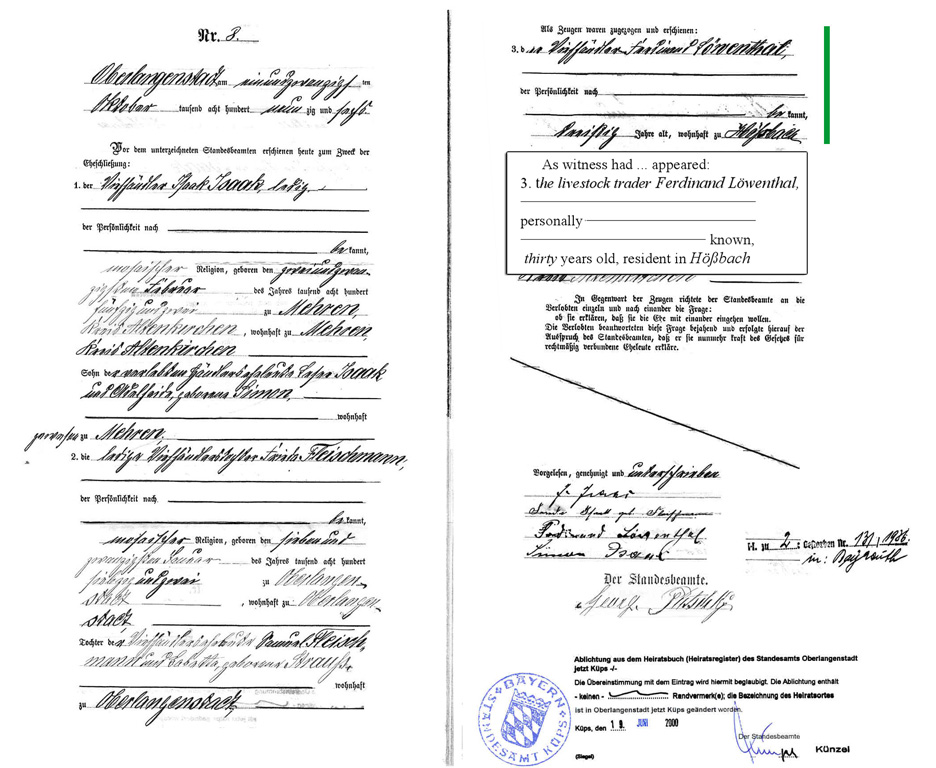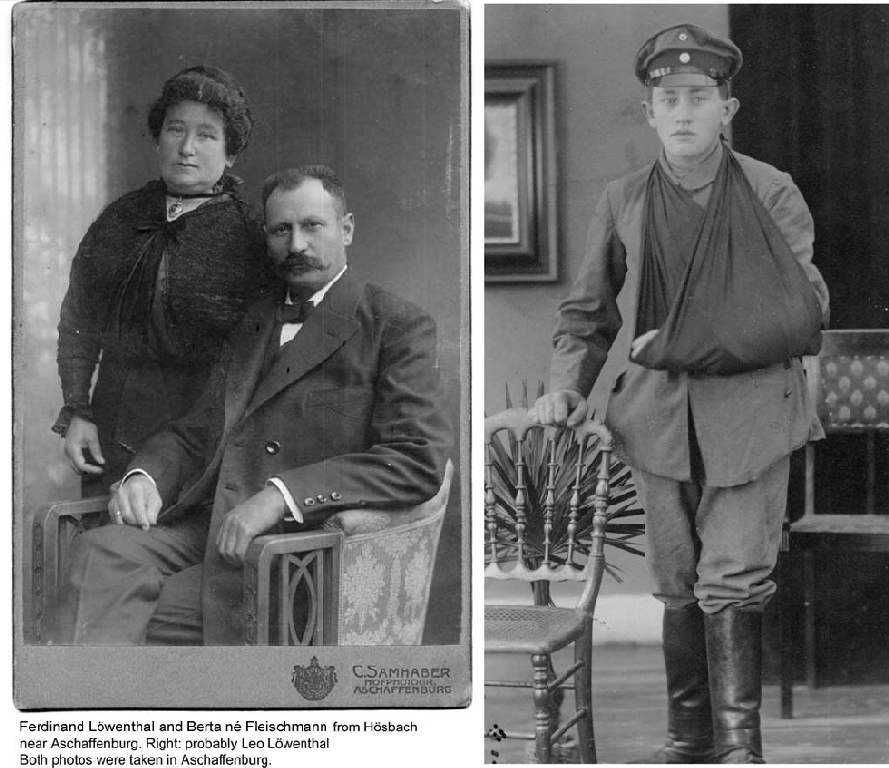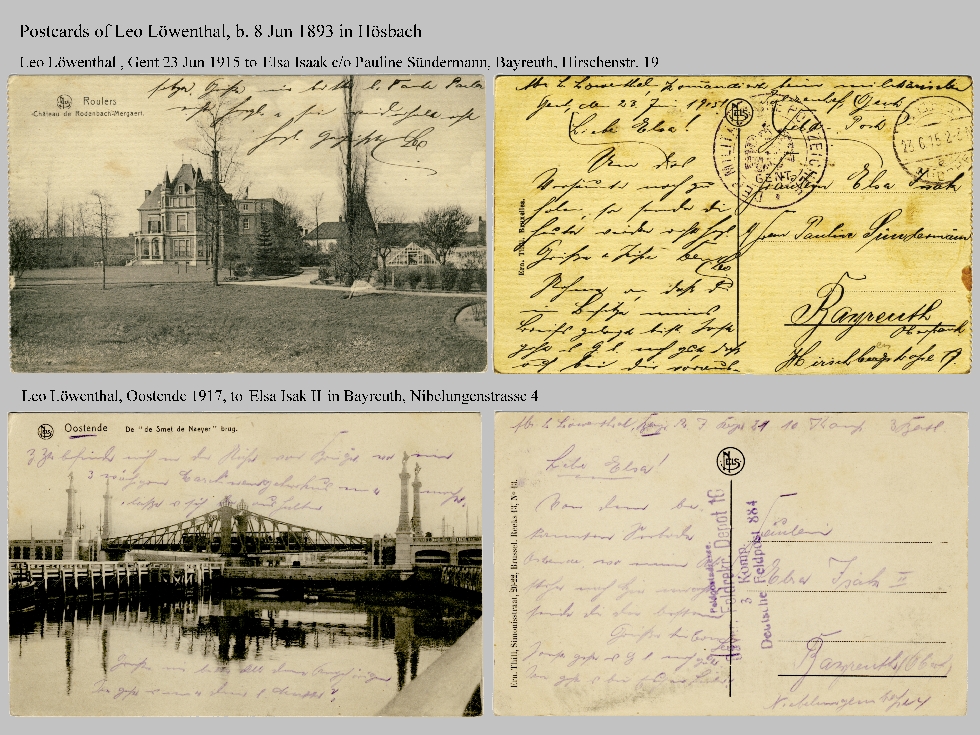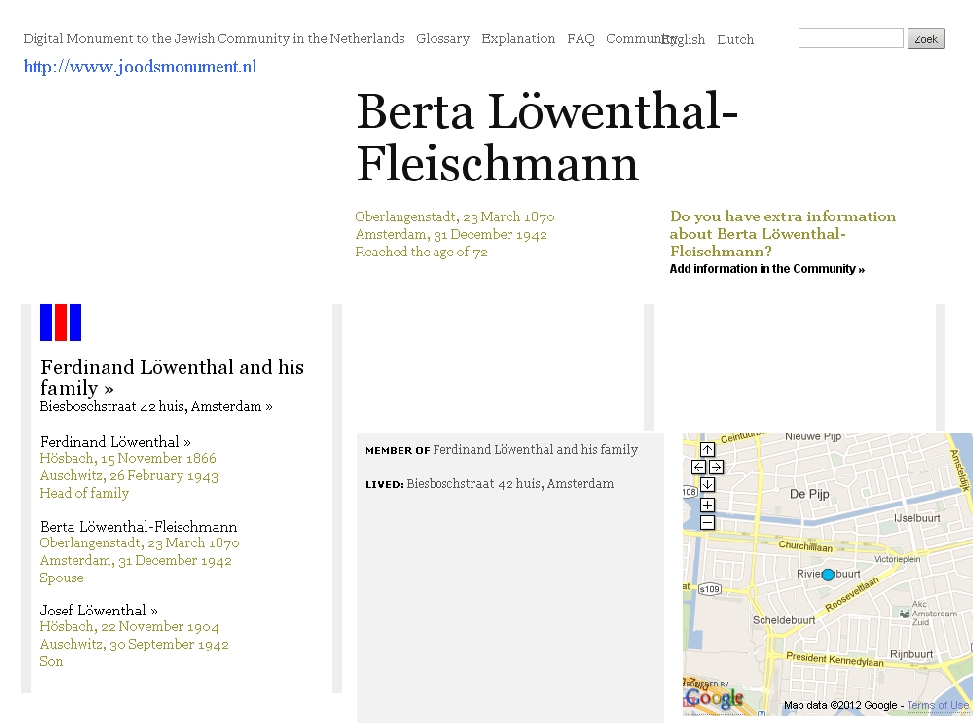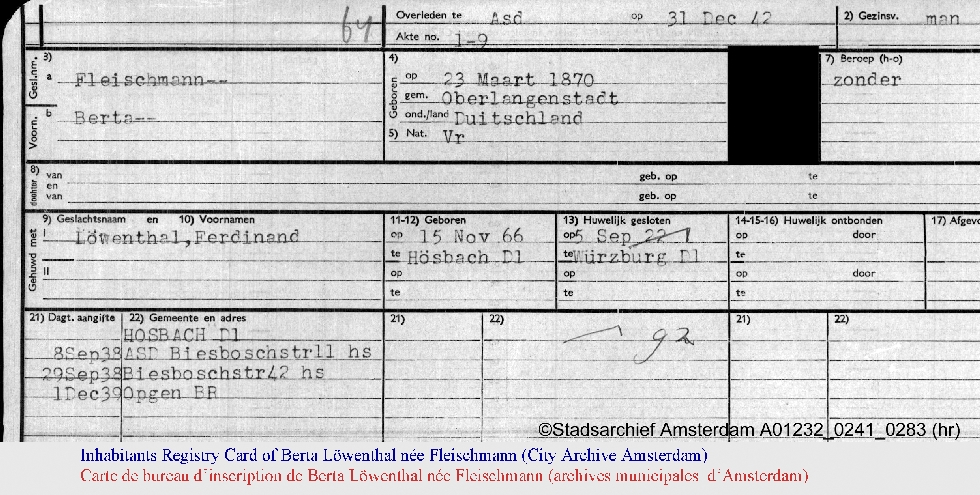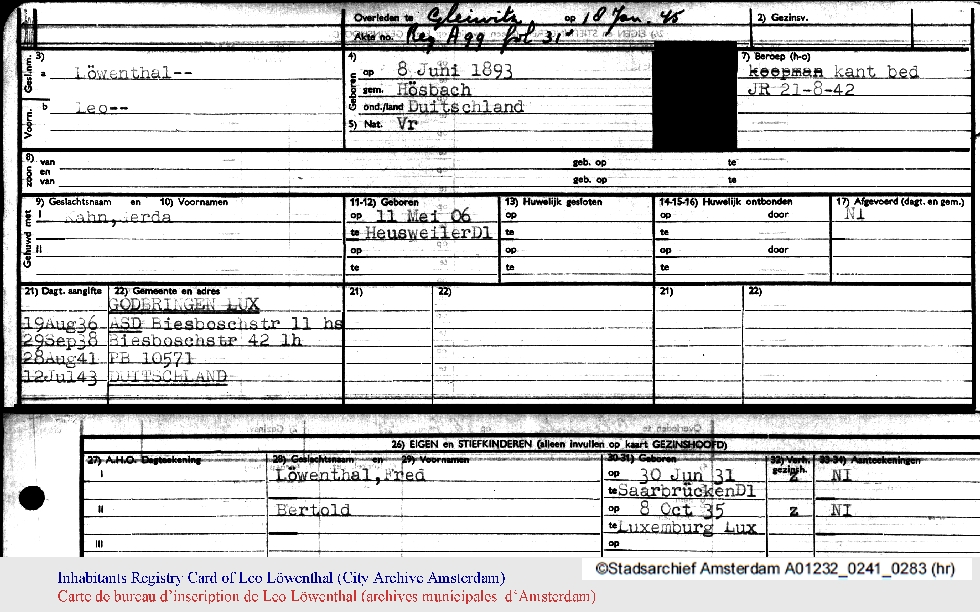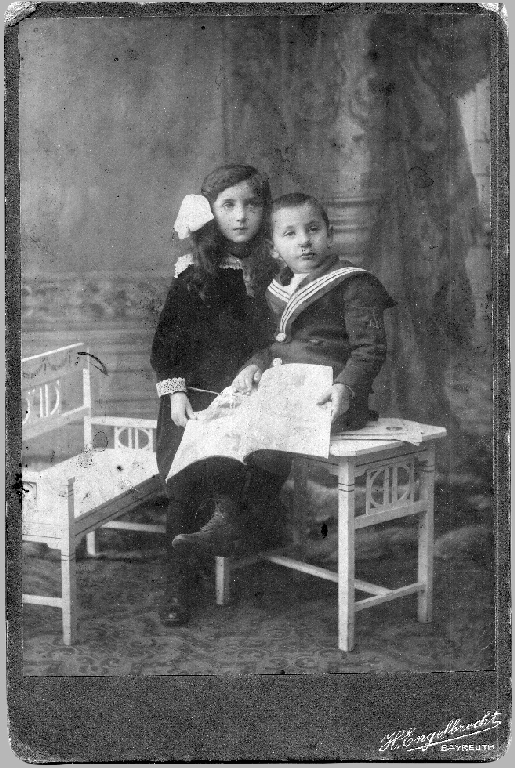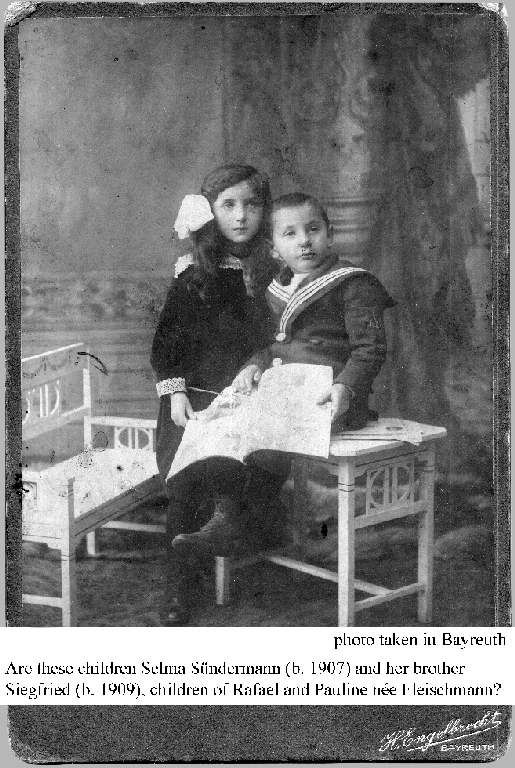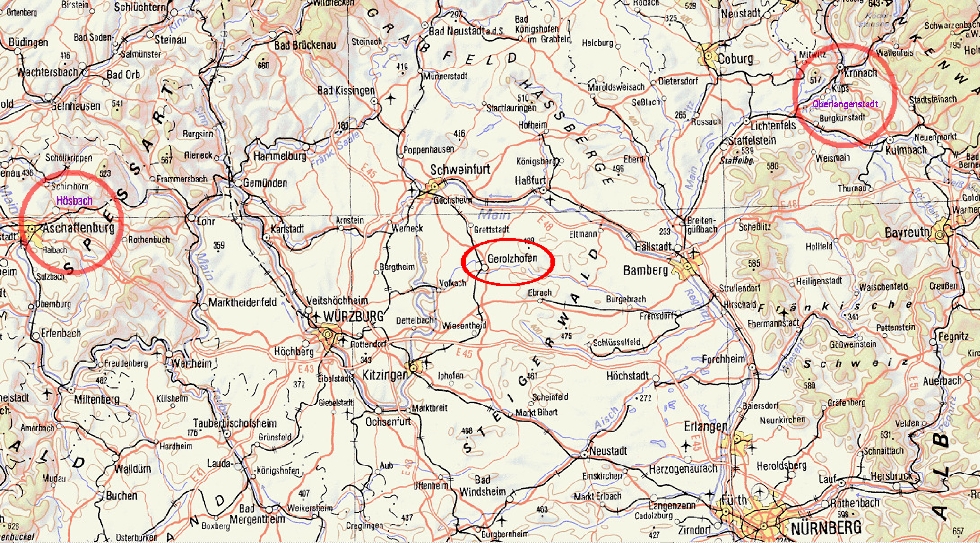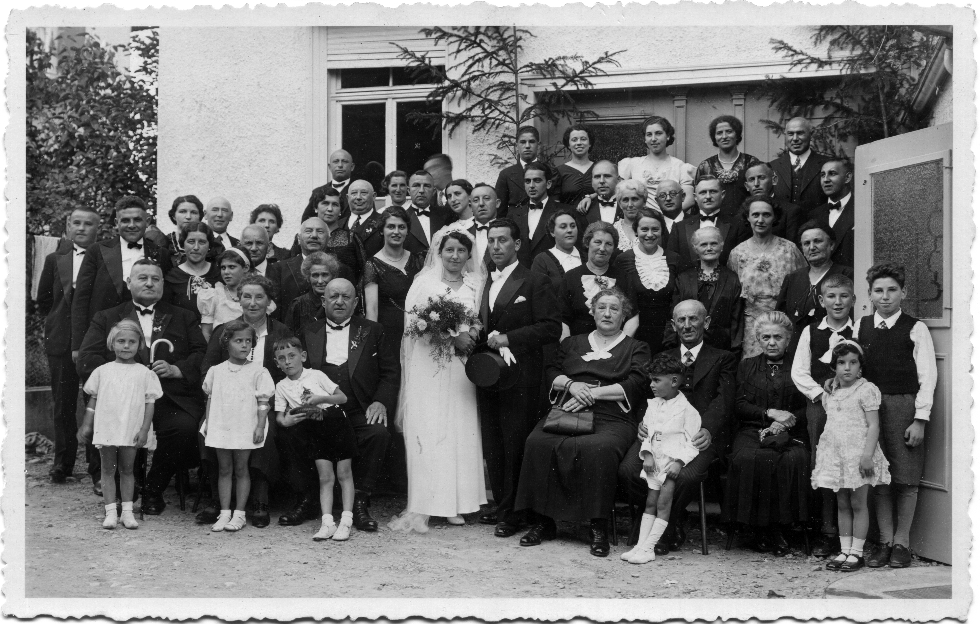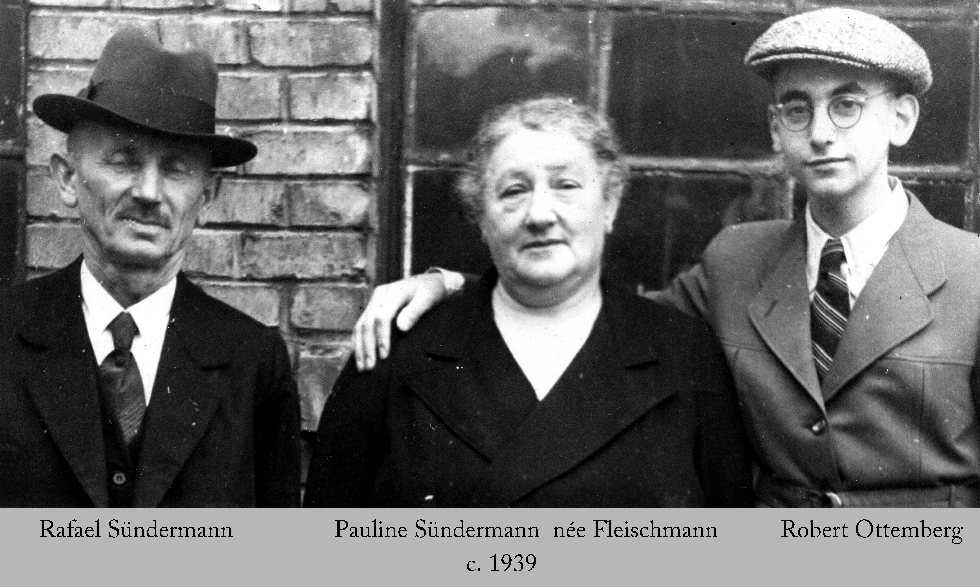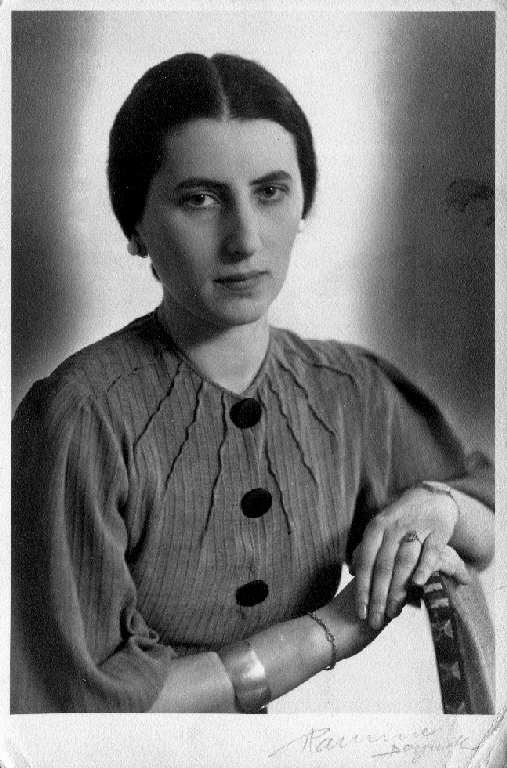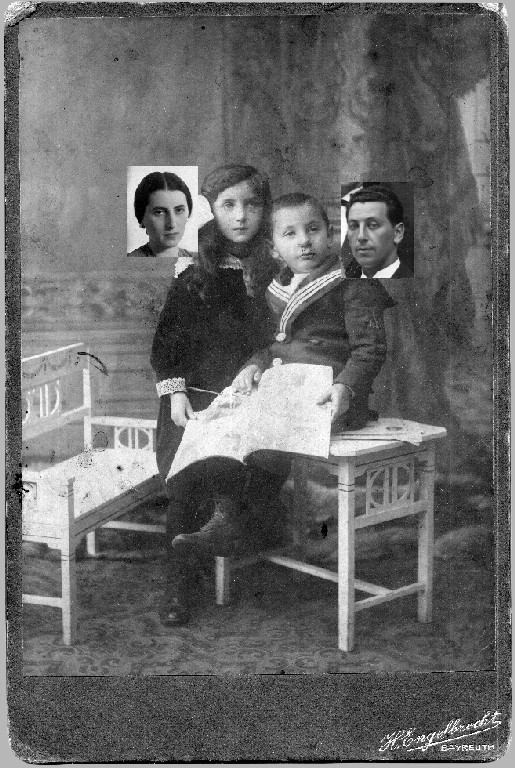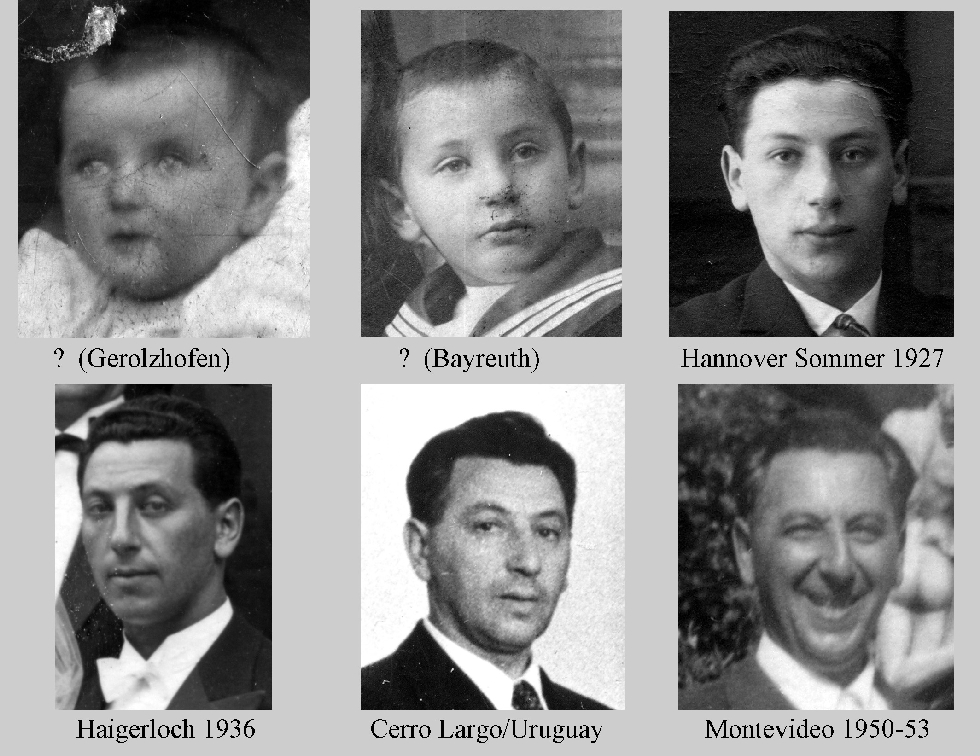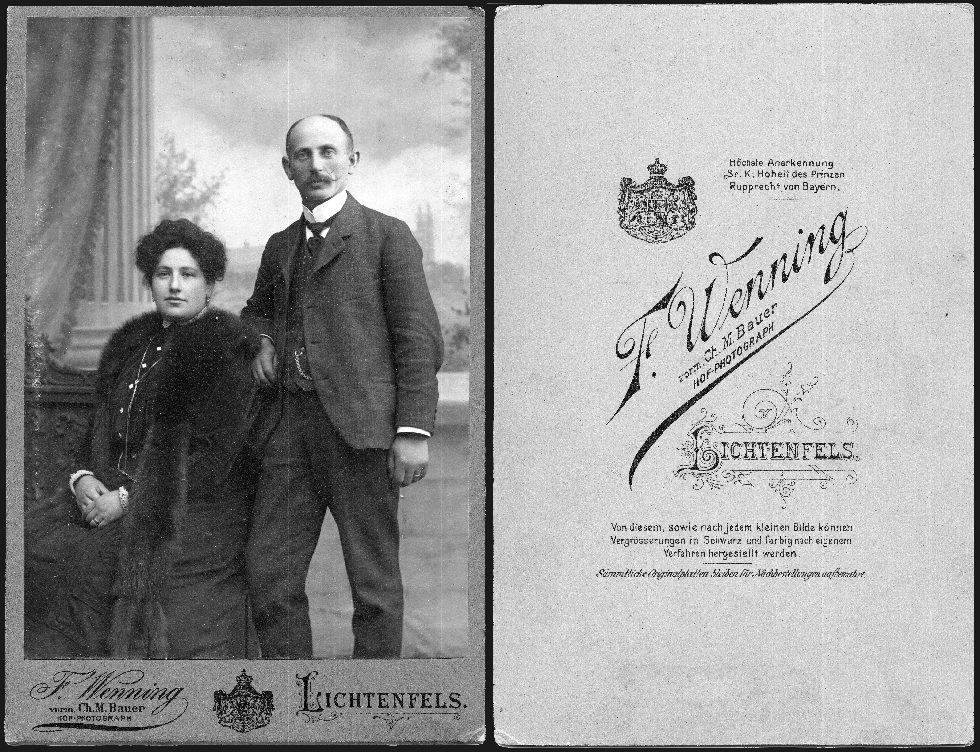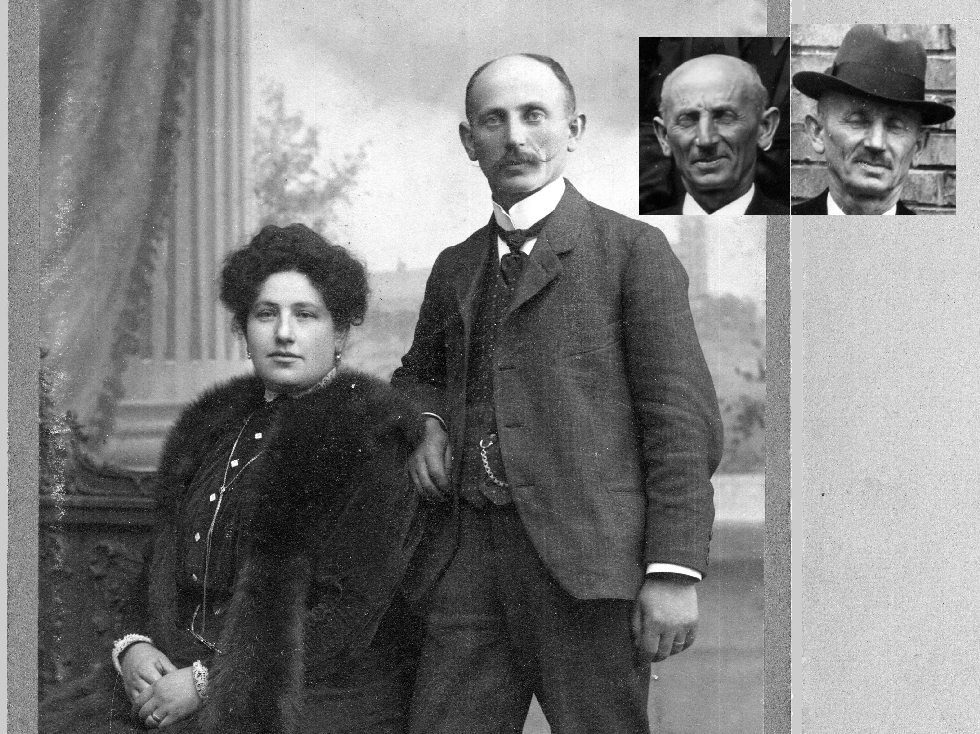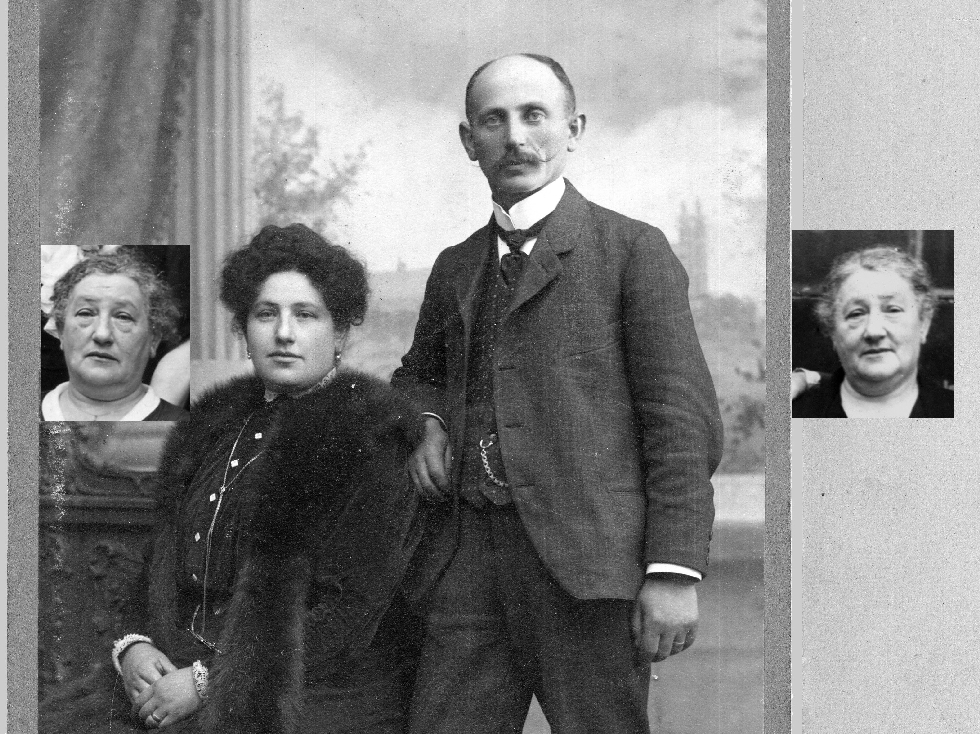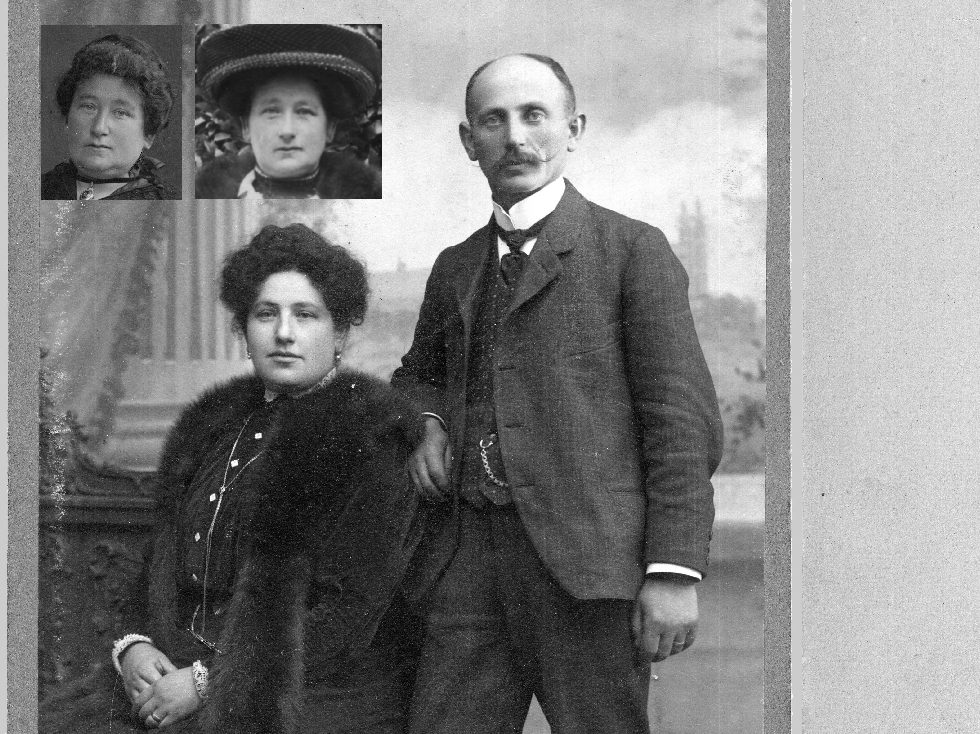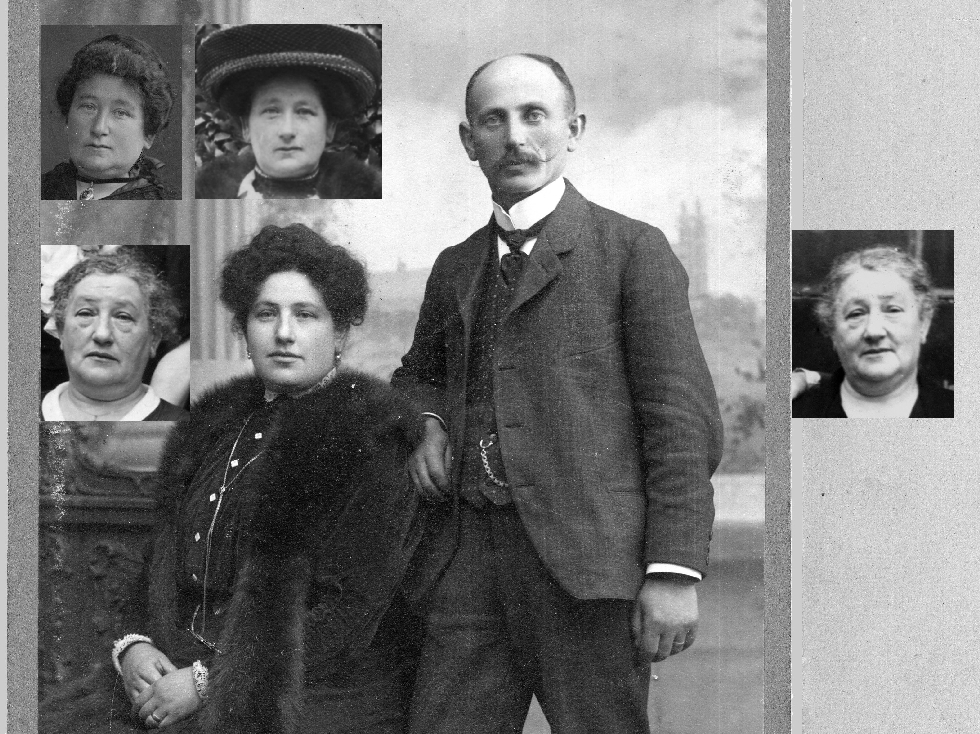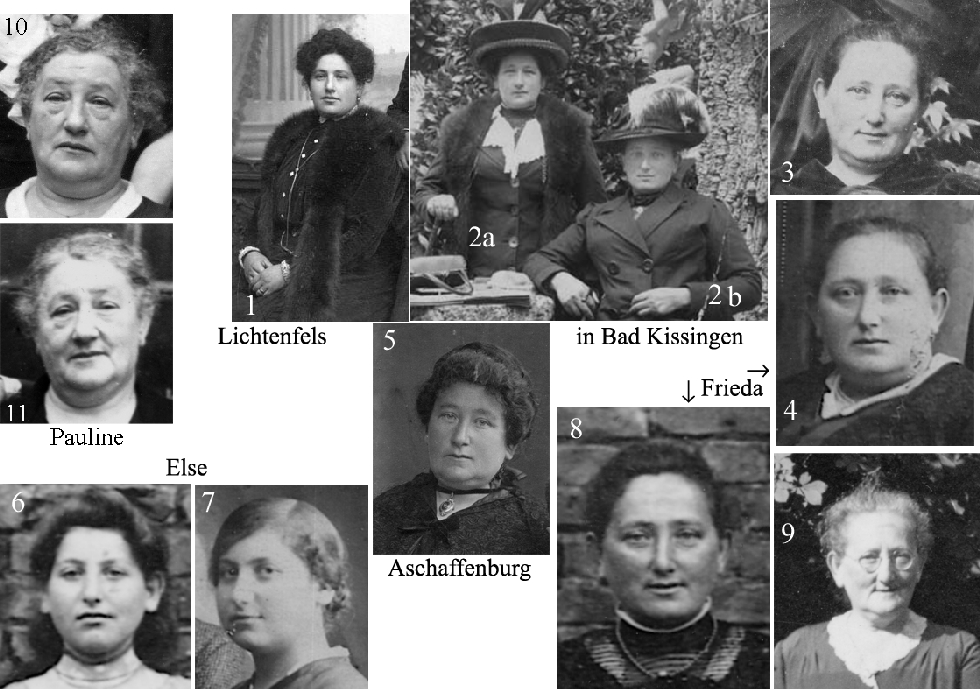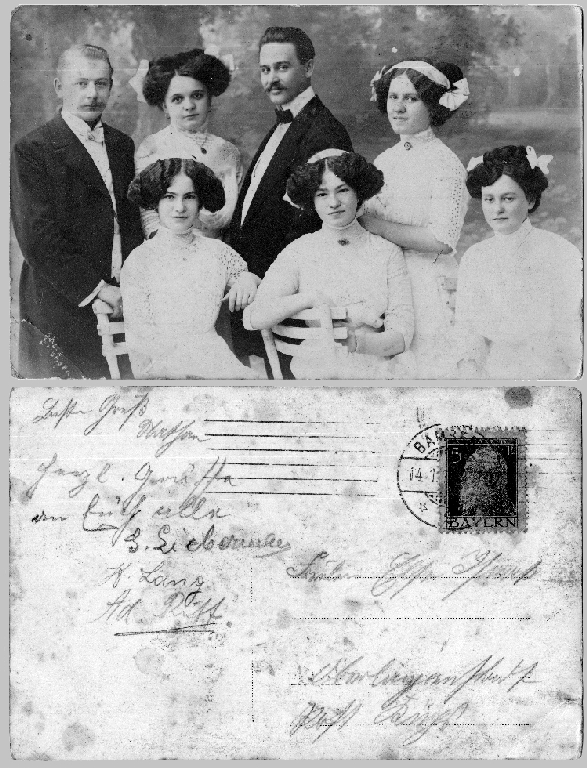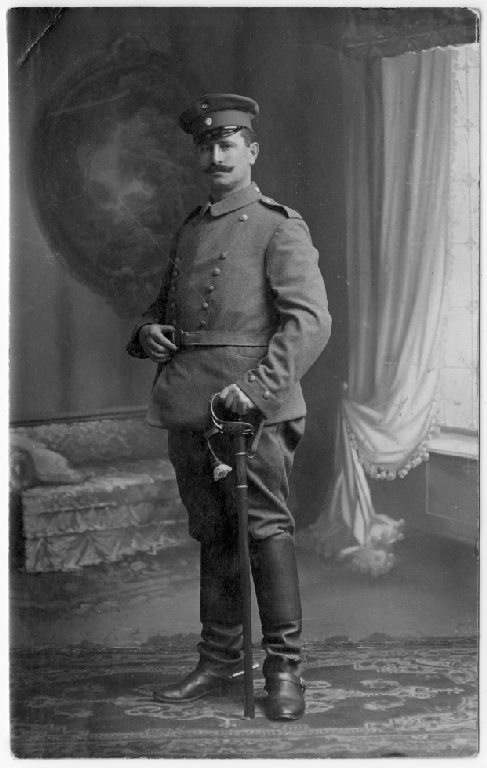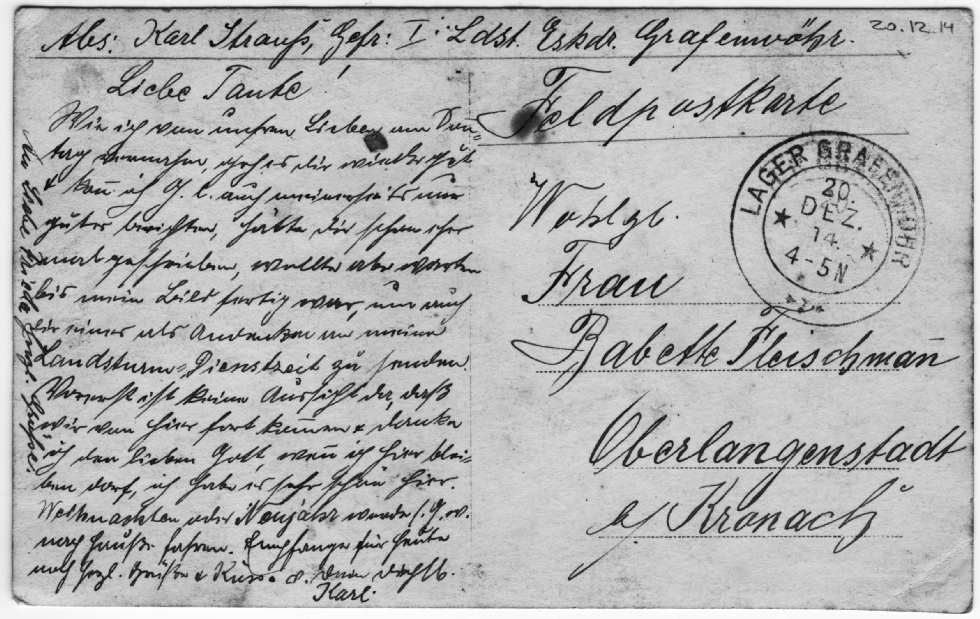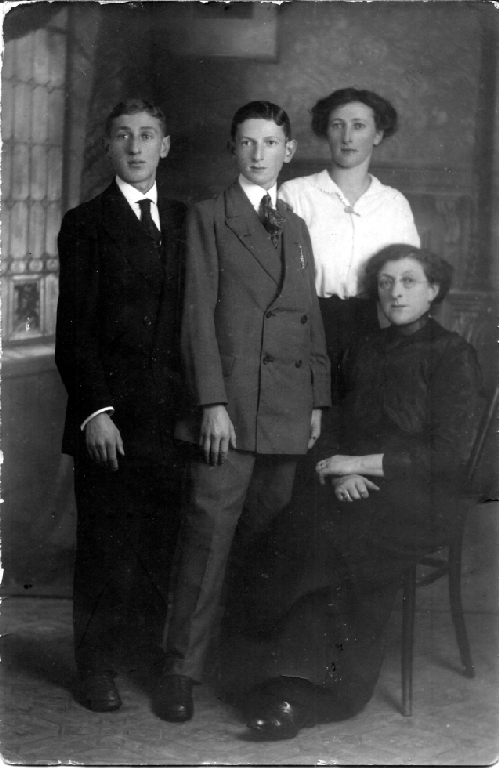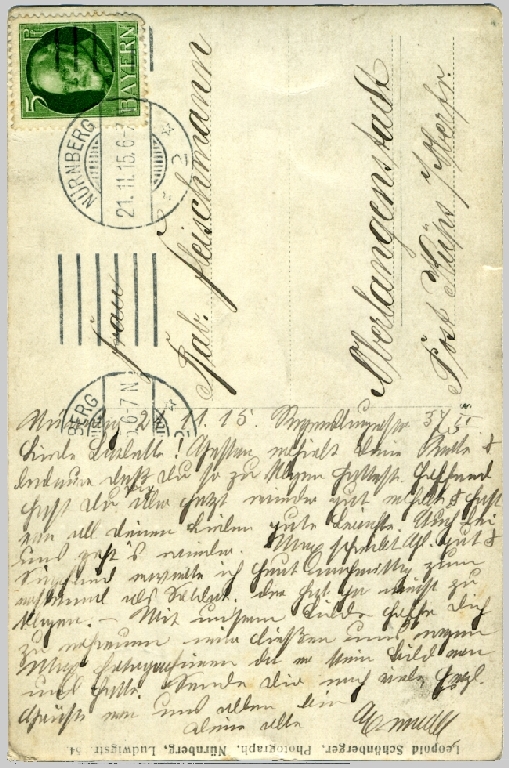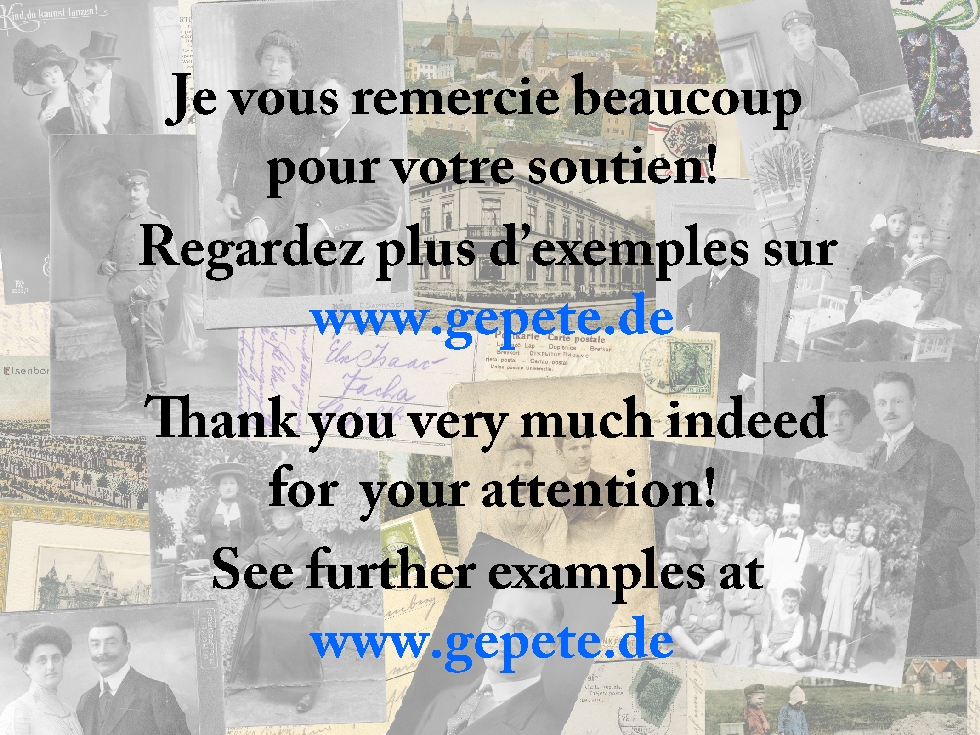| Many descendants of emigrants inherited photos,
letters, and documents which they are unable to associate with any
particular relative. In fact, photos provide us with important
information concerning family histories. By deciphering the writing on
the back of a photo and the name and location of the photo studio or by
determining family resemblances, it is very often possible to identify
relatives. Addresses and greetings on postcards also can determine
relatives, or can provide details about their life, like education,
military service, business travel or love relations. Postmarks provide
the place names which are absolutely necessary for any research. |
Beaucoup de descendants d'émigrants ont
hérité des photos, des lettres et des documents
qu'ils ne sont pas capable d'associer à une personne
particulière. En réalité, ces photos
nous donnent des informations importantes concernant l'histoire des
familles. En déchiffrant l'écriture sur le dos
des photos et le nom et l'endroit du studio du photographe ou bien en
étudiant les ressemblances familiales il est très
souvent possible d’identifier un parent. Les adresses et les
voeux sur les cartes postales permettent également
d'identifier des parents ou peuvent fournir des détails sur
leur vie, comme l'éducation, le service militaire, les
voyages d'affaires ou les relations amoureuses. Les cachets postaux
nous donnent les noms des villes, ce qui est absolument indispensable
pour toute recherche. |
Dr. Ekkehard Hübschmann,
historian and socio-anthropologist, has been
interested in the Jewish history of Northern Bavaria for two decades.
In addition to many lectures and publications, his research
led to
three major
projects concerning the Jews of Bayreuth, conducted by the Historical
Workshop of Bayreuth from 2000 to 2005. In 2004, he initiated the
Working Group for Franconian Jewish History. He conducted research on
Jewish citizens in several cities, such as Ansbach, Fürth,
Kronach, and Selb—and, in particular Bayreuth
(1759–1945). Among his main occupations are research on
deportations, commemorating the victims of the Nazi tyranny, and Jewish
genealogy. Since 2007, he has been a self-employed genealogist,
transcriber and translator of handwritten documents, and genealogical
tour guide. |
L'historien Docteur Ekkehard Huebschmann
s'intéresse depuis deux décennies à
l'histoire des Juifs de la Bavière du Nord. En plus de
nombreuses conférences et publications ses recherches l'ont
conduit à trois projets concernant les Juifs de Bayreuth et
qui ont été menés ensemble avec
«l'atelier d'histoire de Bayreuth» entre 2000 et
2005. En 2004, il a
été un des initiateurs du groupe de travail sur
l'histoire des Juifs en Franconie. Il a entrepris des recherches sur
des citoyens juifs de différentes villes, comme par exemple
Ansbach, Fürth, Kronach et Selb et en particulier Bayreuth
(1759-1945). Parmi ses points forts il y a les récherches
sur la déportation, le souvenir des victimes de la tyrannie
nazie et la généalogie juive. Depuis 2007 il est
généalogiste indépendent. Il transcrit
et traduit des documents manuscrits et travaille comme guide
touristique sur des thèmes
généalogiques. |

